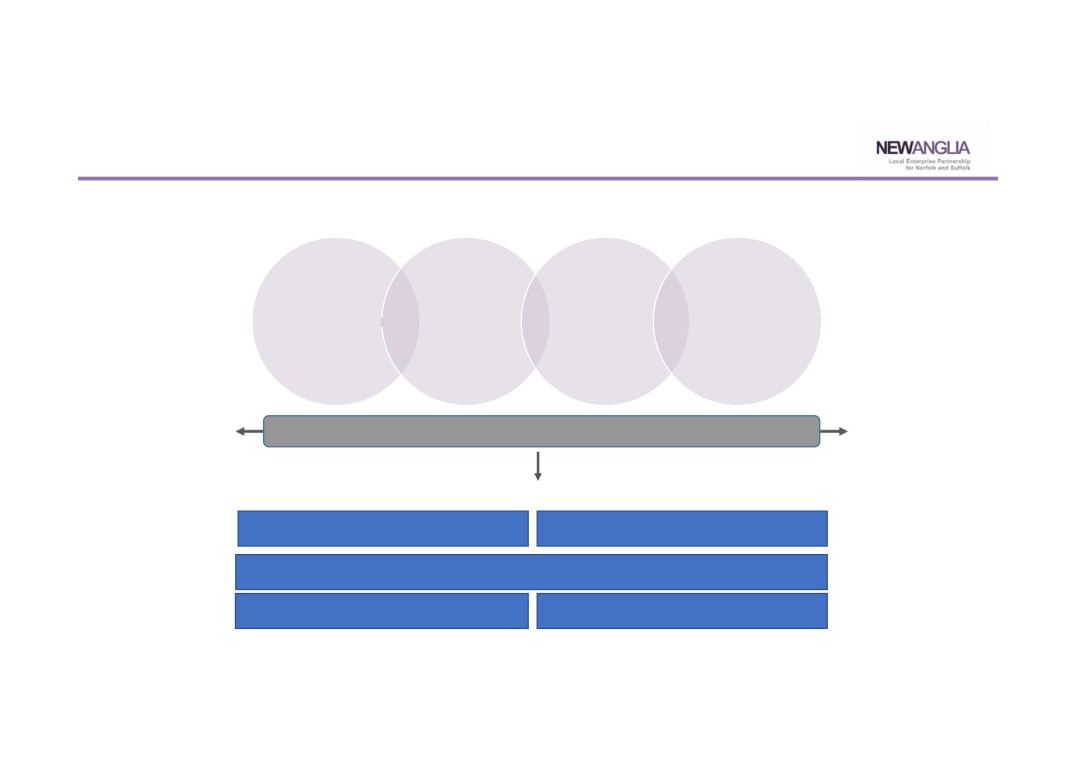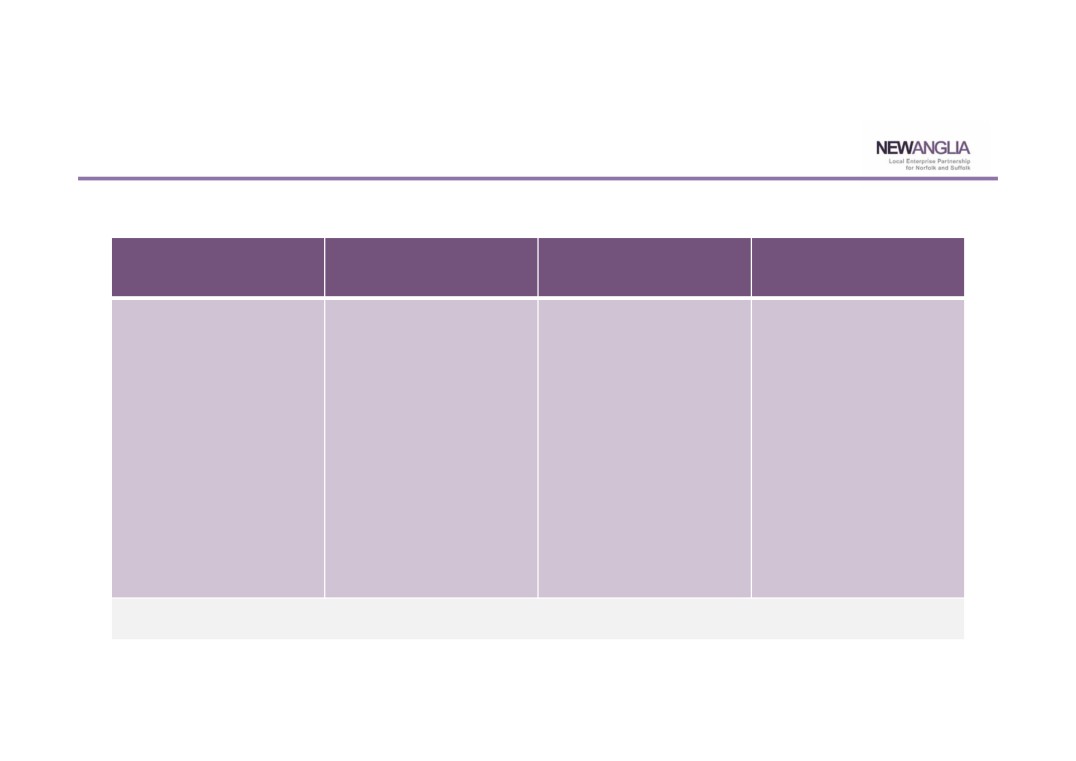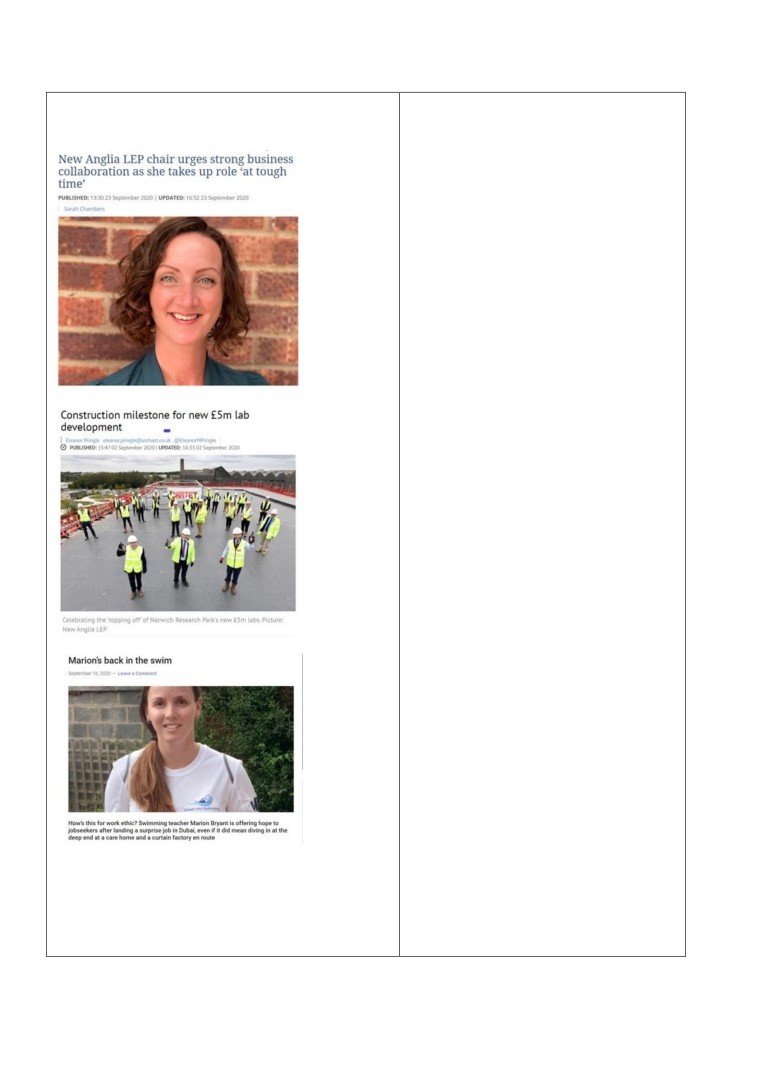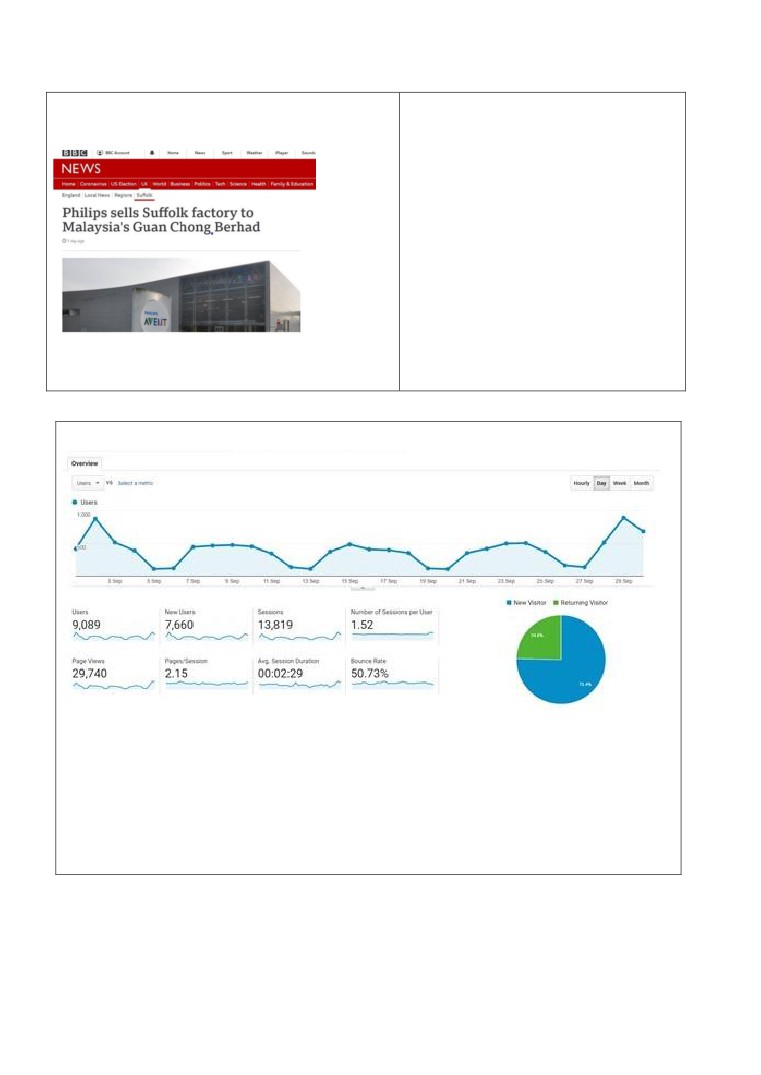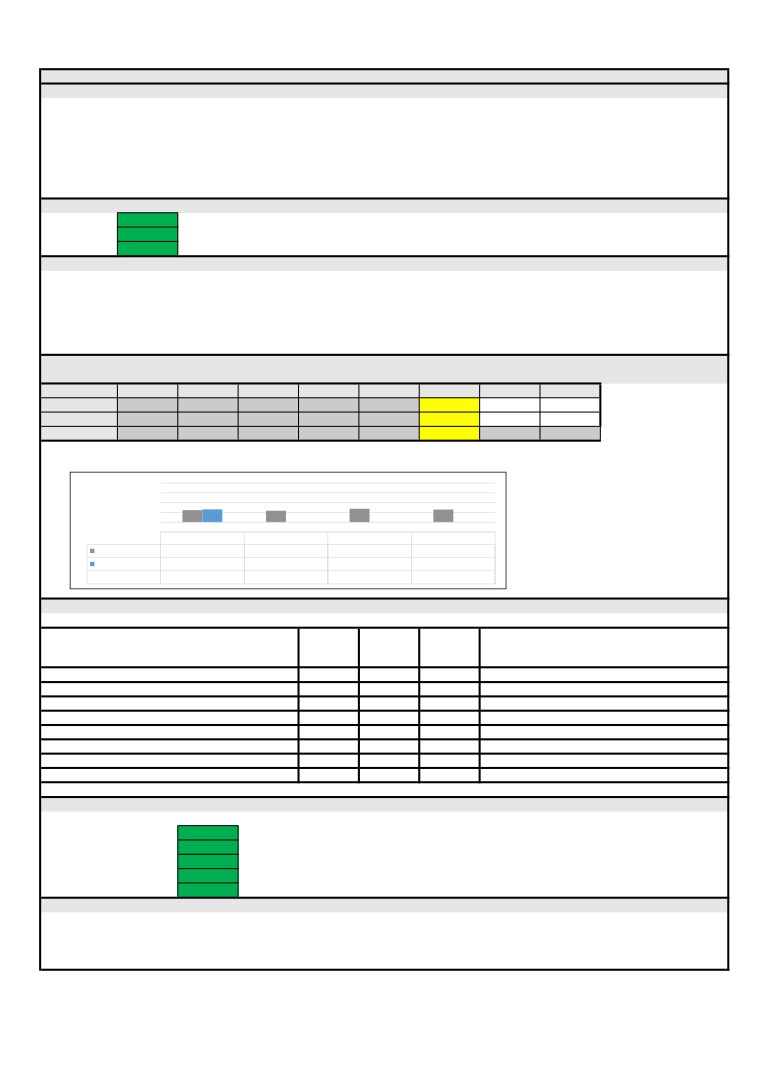New Anglia Local Enterprise Partnership Board Meeting
Wednesday 21st October 2020
10.00 - 12.30pm
Via MS Teams
Agenda
No.
Item
1.
Welcome from the Chair
2.
Presentation from Paul Forecast, Regional Director, National Trust
3.
Apologies
4.
Declarations of Interest
5.
Actions / Minutes from the last meeting
Forward Looking
6.
Skills Advisory Panel Progress Update
Update
7.
All Energy Industry Council Progress Update
Update
BREAK - 15 Mins
Governance
8.
Business Resilience & Recovery Scheme Progress Update
Update
9.
Chief Executive’s Report
Update
10.
October Performance Reports
Update
11.
Quarterly Management Accounts with confidential appendices
Update
12.
Board Forward Plan
Update
13.
Any Other Business
1
New Anglia Board Meeting Minutes (Unconfirmed)
23rd September 2020
Present:
Sam Chapman-Allen (SC)
Breckland Council
David Ellesmere (DE)
Ipswich Borough Council
Doug Field (DF)
East of England Coop
C-J Green (CJG)
Brave Goose
John Griffiths (JG)
West Suffolk Council
Matthew Hicks (MH)
Suffolk County Council
Pete Joyner (PJ)
Shorthose Russell
Dominic Keen (DK)
Britbots
Helen Langton (HL)
University of Suffolk
Steve Oliver (SO)
MLM Group
Corrienne Peasgood (CP)
Norwich City College
Andrew Proctor (AP)
Norfolk County Council
Johnathan Reynolds (JR)
Opergy
Sandy Ruddock (SR)
Scarlett & Mustard
Alan Waters (AW)
Norwich City Council
Jeanette Wheeler (JW)
Birketts
Tim Whitley (TW)
BT
Attendees
Kathy Atkinson (KA)
Kettle Foods
Mark Ash (MA)
Suffolk County Council
Vince Muspratt (VM)
Norfolk County Council
Julian Munson (JM)
New Anglia LEP - For Item 5
Chris Dashper (CD)
New Anglia LEP - For Item 9
Chris Starkie (CS)
New Anglia LEP
Helen Wilton (HW)
New Anglia LEP
1
Actions from the meeting: (26.08.20)
Chief Executive’s Report
BR&R data to be circulated to board members
CS
New Anglia Capital
Board members to consider putting themselves forward to join the NAC board
All
September Performance Reports
Carry out analysis on the impact of EZ planning regulation changes
JM
AOB
Suggestion for presenters to be supplied to HW who will organise a programme
All/HW
1
Welcome from the Chair
Doug Field (DF) welcomed everyone to the meeting. He noted that latest Government
announcements regarding the changes in restrictions to tackle the recent surge in Covid-9 cases and
reiterated the need for the LEP to provide strong leadership at the challenging time for the local
economy.
2
Apologies
Apologies were received from Claire Cullens
3
Declarations of Interest
DF declared an interest in Supapass, under Item 9, the New Anglia Capital Bi-Annual Report.
Helen Langton (HL), Corrienne Peasgood (CP) and Jeanette Wheeler (JW) declared an interest in
item 6 - the Institute of Technology.
John Griffiths (JG), Matthew Hicks (MH) and David Ellesmere (DE) expressed an interest in Item 7 -
Suffolk Inclusive Growth Investment Fund
Full declarations of interest can be found at http://www.newanglia.co.uk/about-us/the-board.
4
Minutes of the last meeting
The minutes were accepted as a true record of the meeting held on 21st July 2020
Chris Starkie (CS) confirmed that both outstanding actions were on schedule for
completion by their target date of November 2020.
5
Innovation Board Update
Julian Munson (JM) presented the board with an update on the work of the Innovation
Board and highlighted the successes achieved in cross-sector innovation across the
region.
JM confirmed that Norfolk County Council was already represented on the Board and that
a letter would be going to Suffolk County Council asking for a representative so that both
local authorities were represented.
JM noted the hard work of his team and advised that, going forwards, they would also be
investigating the opportunities to work more closely with the Skills Advisory Panel (SAP).
Johnathan Reynolds (JR), Chair of the Innovation Board, highlighted the progress
achieved and the important role of local authorities in innovation advising that the board
was keen to continue to work closely with the public sector.
He also noted the benefit of inviting representatives from other bodies, such as the LEP’s
industry councils, to speak at the meetings as this helped to provide a clear understanding
of their requirements.
JR expressed his thanks to JM and his team for their support.
HL queried whether the Innovation Board would be involved in the applications to host an
Institute of Technology (IoT).
2
JR advised that there was not enough clarity on IoTs at the current time but agreed that
the Board would be working closely educational establishments as the requirements are
ascertained.
The Board agreed:
• To note the content of the report
6
Institute of Technology
HL, JW and CP declared an interest in this item. It was agreed that they would remain for
the discussion but would not participate in the discussion or in the vote.
CS presented the meeting with an update on the process for applying for an IoT and the
local framework which has been drawn up to assist applicants. He advised that LEPs
would be involved in the process but would not have a key decision making role.
CS reviewed the background to the IoTs which aim to bring together business and
technology and noted that the submission of an Expression of Interest earlier in the year
was optional and does not exclude any new applicants submitting to stage one which
formally starts in the Autumn.
The framework is intended to help applicants ensure that their proposals are developed in
line with priorities for the local economy set out in the Economic Strategy, Local Industrial
Strategy and the new Economic Recovery Restart Plan. Expectations and are centred
around 4 key themes - additionality, strategic fit, leverage and deliverability.
The meeting discussed the lessons learnt from the previous application process.
The Board agreed:
• To note the content of the report
• To endorse the proposed process and local framework which will be used to set out
regional expectations for Institute of Technology proposals covering Norfolk and
Suffolk.
7.
Suffolk Inclusive Growth Investment Fund
JG, MH and DE declared an interest in this item. It was agreed that they would remain for
the discussion but would not participate in the discussion or the vote.
CS reviewed some of the projects included in the Norfolk Strategic Fund which has
previously been awarded £1m of LEP capital funds. He then presented the
the request for £1m of LEP capital funds to the Suffolk Inclusive Growth Investment Fund to
support economic recovery. The Board also received details of the proposed principles for
the process of allocation of the funds and the role of the LEP.
The contribution will be part of a one-year fund that will be open to public sector partners
including the LEP for applications.
The Board agreed:
• To note the content of the report
• To approve the allocation of £1m capital from the LEP to Suffolk Inclusive Growth
Investment Fund and the proposed process for the management and allocation of the
funds as set out in the report
8.
Chief Executive’s Report
CS presented the report and highlighted key items.
He noted the success of the Business Resilience and Recovery scheme and advised that
a paper providing further information on recipients of the funding would be presented at the
October board meeting.
CS stated that round 500 companies had now signed up for the Restart Festival and
encouraged board members to promote the festival.
3
CS highlighted the launch of the Tech 100, a virtual event where presentations were
provided by Stephen Fry and Tim Whitley (TW) who confirmed the success of the occasion
which promoted the top 100 innovative and high-potential digital tech companies from the
region.
Peer to Peer Network - CS advised that the first cohort of businesses was being recruited
and they would ensure that the care sector was included in the allocations of spaces for
businesses
Banham Poultry Covid-19 outbreak - CS confirmed that the LEP has worked closely with
the company and other businesses in the poultry industry to provide support during the
outbreak and to ensure lessons learnt are carried forward.
JG asked for details ofgrant recipients to be circulated.
CS confirmed that the appraisal process for the Visitor Economy Grants (VEGs) and Wider
Economy Grants (WEGs) was still ongoing but details of the Business Resilience and
Recovery (BRR) funding would be provided.
ACTION:
BRR data to be circulated to board members
CS
CS noted the successful work across the Economic Development Officers across the
region in promoting the scheme.
The Board agreed:
• To note the content of the report
9
New Anglia Capital Bi-Annual Report - Confidential
The New Anglia Capital Board has requested another member to enhance capacity.
Volunteers were requested from the Board.
ACTION: Board members to consider putting themselves forward to join the NAC board
All
The Board agreed:
• To note the content of the report
10
September Performance Reports
Rosanne Wijnberg (RW) presented the reports to the Board and highlighted key items.
Growth Deal - The dashboard covers Q1 April to June demonstrating how the pandemic
impacted on delivery and finances. It is anticipated that the projects will slow down but
outputs will still be achieved.
Enterprise Advisor Network - the report details that 2 targets were missed which relate to
direct contact with employers. The EAN team have used innovative approaches to
supporting students and their best practice is being considered for further roll out.
Enterprise Zones (EZs) - JR asked the recent changes to planning regulations would
impact on the EZs or provide more opportunities.
RW confirmed that this would be investigated further on a site by site basis
4
ACTION: Carry out analysis on the impact of EZ planning regulation changes
JM
The Board agreed:
• To note the content of the reports
• To approve the Growth Deal Dashboard
11
Board Forward Plan
JW noted that the Board had previously met in different locations allowing projects and
partners to present to them and asked if a programme of presentations could be included
in future virtual meetings. The Board agreed with the suggestion.
ACTION: Suggestion for presenters to be supplied Helen Wilton (HW) who will organise a
All
programme
The Board agreed:
• To note the content of the plan
12
Any Other Business
CS confirmed that the LEP response to the Comprehensive Spending Review had been issued
for comments by the board with the board papers and as all were content would now be signed
off by DF and submitted.
At his final meeting as LEP Chair DF expressed his thanks to the board members for their
support during his term as chair and wished C-J Green (CJG) success as she took over the
role.
CS and the board thanked DF for his hard work and commitment to the region during his time
both as a board member and as its chair.
CJG proposed a vote of thanks to DF on behalf of the board and personally thanked him for the
assistance he had provided to her as incoming chair.
Her comments were strongly supported by the board members who added their thanks.
DF was also presented with a card and gift vouchers and a photo book highlighting key events
during his time as chair.
5
Actions from New Anglia LEP Board Meetings
Date
Item
Action
Update
Actioned
Target Date
By
23/09/2020
Chief Executive’s Report
BR&R data to be circulated to board members
Circulated 1st October
CS
Complete
23/09/2020
New Anglia Capital
Board members to consider putting themselves forward to join the NAC board
All
Nov-20
23/09/2020
September Programme
Carry out analysis on the impact of EZ planning regulation changes
JM
Nov-20
Perforamance Reports
23/09/2020
AOB
Suggestion for presenters to be supplied to HW who will organise an ongoing programme
Regional director of the National Trust will address the October Board
All / HW
Nov-20
meeting. Further presenters will be arranged.
26/02/2020
Clean Growth Taskforce
Board members to consider a pledge which the Board could make and submit suggestions to
All
Nov-20
the Chair.
23/05/2019
Growth Hub Presentation
Growth Hub Annual review to be circulated to the Board when published
The reviwe will now be published in Autumn 2020 to include the period
CD
Nov-20
since March.
9
New Anglia Local Enterprise Partnership Board
Wednesday 21st October 2020
Agenda Item 6
Skills Advisory Panel Progress Update
Author: Claire Cullens and Natasha Waller. Presenter: Claire Cullens
Summary
This paper provides a high-level summary of the current priorities of the Skills Advisory Panel
(SAP), its activity over the last year, and sets out the direction of travel for the coming year.
Recommendations
To continue to endorse the vision of the Skills Advisory Panel and its current direction of
travel.
To continue to champion the ‘key messages’ of the Skills Advisory Panel.
To support the wider work in response to Covid-19 supporting People such as that of
the Workforce Workstream.
Background
At the LEP Board on July 2019 Paul Winter, Chair of the LEP Skills Board updated the LEP
Board on progress of the LEP Skills Board and sought agreement to change to a Skills
Advisory Panel in response to a request by the Department for Education.
Paul stood down in the autumn of 2019 and Claire Cullens was appointed as the new Chair, to
lead the re-launched Skills Advisory Panel. On conferring with the Panel about their aspirations,
it was clear they wanted to see tangible outcomes from their involvement whilst still capturing
the essence of the existing objectives.
The vision of the Skills Advisory Panel is ‘to support the growth of an inclusive economy with a
highly skilled workforce where skills and employment provision meets business need and the
aspirations of individuals.’
It is made up of private sector members covering our key sectors, post 16 providers,
Department of Work and Pensions, Chambers of Commerce, Education and Skills Funding
Agency and councillors & officers from Norfolk and Suffolk County Councils.
The Panel meets 6 times a year and each member is asked to be proactive in identifying how
and where they can contribute to and collaborate in any key interventions between meetings.
Key areas of work
o The Skills Advisory Panel has four objectives:
o Driving skills progression for the workforce - encouraging lifelong professional
development, upskilling and reskilling which will future-proof New Anglia business, boost
productivity and improve the quality of our products, services and supply chains.
1
11
o Providing agile and responsive training provision for key sectors - working in
partnership with businesses, developing innovative training courses, able to meet the
emerging needs of the New Anglia economy
o Equipping young people for success - unlocking the abilities, confidence and
potential of young people, equipping this future generation with the technical skills,
digital, entrepreneurship and problem-solving capabilities for further and higher
education and ultimately employment in our evolving technical sectors
o Tackling barriers to employment - Developing stepping stone opportunities for
vulnerable and disadvantaged groups to develop the skills required to enter, re-enter or
transfer employment to benefit from productive careers in our technical sectors.
Following a consultation exercise, Panel members agreed a framework for action with a SAP
private sector member acting as Champion for each objective group, an education link and a
LEP/county council officer acting as a facilitator. Panel members were aligned to each group to
develop two projects based around a framework agreed by all members. These projects need
to deliver initial outputs by the end of 2020.
The basis of these projects are laid out in the PowerPoint presentation in appendix 1 (slides 5 -
8). You will also see a flavour of the skills interventions taking place in the region that the SAP
members have a role in driving or supporting (slide 4). We are encouraging engagement with
existing interventions but with clear understanding of where the SAP is adding value. Having a
targeted approach means that we can have some tangible outcomes from our work. Scattering
ourselves thinly over a wide number of projects was not the approach that members were
wanting to adopt at this stage.
These objectives cannot be looked at as discrete entities, so we are asking some members to
spend time with another group from time to time plus invite non-SAP members to objective
meetings where appropriate.
The outputs from this work will be showcased in the Local Skills Report that we need to
produce by the end of March 2021. This is a requirement of our funding from the Department
for Education. Our report and those of other LEPs will be a key source of local skills information
that enable cross-area comparison and feed local intelligence to the soon to be formed national
Skills and Productivity Board (SPB) and central government. The Skills and Productivity Board
will be an expert committee established by the Department for Education (DfE) to provide the
Government with independent advice and analysis on skills mismatches and to help ensure that
the skills system is aligned to employers’ future needs.
Our Local Skills Report will help to grow the influence of the SAP by:
- acting as an engagement tool
- being a 'go-to' document for everything local-skills related
- clearly setting out key skills needs
- offering valuable insight and evaluation
Response to Covid-19
In addition to the new framework and objectives, in recent months, the SAP has been asked to
oversee the work of the Workforce Workstream which was established by the LEP and partners
across Norfolk and Suffolk in response to the Covid-19 pandemic.
This group includes a number of members of the SAP, colleagues of SAP members and wider
partners such as district councils and the National Careers Service.
It provided input into the Norfollk and Suffolk Economic Recovery Restart Plan which was
signed off by the LEP and published in July.
To turn that plan into action it has now developed the People component of the Economic
Recovery Restart Delivery Plan. This has been endorsed by SAP members and mapped
against our 4 objectives and accompanies this report as Appendix 2.
2
12
Other notable work includes the New Anglia Skills Deals Programme - over the past 12 months
initiated and overseen by the Skills Board and now the Skills Advisory Panel, these have
continued to enhance the local training offer through the development and delivery of new
employer-led provision. Highlights have included the successful delivery of new Gas
Assessment qualifications at Suffolk New College, the further development of the Milburn
Campus construction site at West Suffolk College and the extension of the Offshore Wind Skills
Deal project at East Coast College. This means that the Skills Deals Programme has now
benefitted over 1000 learners and created 38 new courses.
European Social Fund investment since 2015 in Norfolk and Suffolk amounts to £33.4m in
completed and contracted projects to date. There is more committed and we have been
successful in securing further funds through the National Reserves. We work closely with the
programmes to ensure they deliver on our ambitions and achieve the designated outputs. New
projects currently being established include those delivering on our Youth Pledge - “Every
young person in Norfolk and Suffolk will have the support they need to get into education,
employment, training or an apprenticeship.”
The LEP Board are also reminded of skills papers that have been presented in recent months
on apprenticeship levy sharing, the Institute of Technology and the challenges around
employment. Our work as a collective panel and that of the LEP & County Council skills officers
is strategic for the mid to long term but will also be responsive to changes in economic climates
and educational policy change.
Link to the Economic Strategy
Inclusion and Skills is a clear theme in the Economic Strategy and lays out 10 high level action
points to move the agenda forward, particularly within our key sectors.
Our work helps to close the skills and labour gaps plus continues to build skills across the
strategic opportunity areas as set out in the Local Industrial Strategy.
Recommendations
To continue to endorse the vision of the Skills Advisory Panel and its current direction of
travel.
To continue to champion the ‘key messages’ of the Skills Advisory Panel.
To support the wider work in response to Covid-19 supporting People such as that of
the Workforce Workstream.
Appendix:
1 - A New Anglia LEP Skills Advisory Panel vision and delivery steps PowerPoint presentation.
2 - Economic Recovery Restart Delivery Plan - People
3
13
@NewAngliaLEP
Appendix 1
New Anglia Skills Advisory Panel
Vision and Delivery Steps
15
@NewAngliaLEP
Vision Statement
To support the growth of an inclusive economy with a highly skilled workforce where skills and employment
provision meets business need and the aspirations of individuals.
Role and Operating Principles of the Skills Advisory Panel (SAP):
The New Anglia Skills Advisory Panel provides the strategic leadership for this vision. Each member should
be proactive in identifying where they can contribute to and operate in line with agreed membership
expectations.
develops and supports key skills and employment interventions with clear focus areas
to ensure post-16 educational outcomes meet business needs in the New Anglia LEP
region
provides a strategic steer for the LEP Board on the employment and skills agenda
lobbies to achieve required freedoms, flexibilities and resources and raise the profile
of the New Anglia LEP region
collaborates proactively to identify barriers and opportunities in delivering these key
interventions
galvanises the wider employer base to be involved in skills development
provides analytical evidence and subsequent coordination across the skills system in
line with key strategies such as the Economic Strategy for Norfolk and Suffolk & Local
Industrial Strategy
16
@NewAngliaLEP
Skills Advisory Panel Strategic Objectives
Providing
Driving
Agile &
Equipping
Skills
Tackling
Responsive
Young
Progression
barriers to
training
People for
for the
employment
provision for
success
workforce
key sectors
Metrics (RAG)
Economic Strategy Delivery Plans
Our Offer to the World
Growth and Productivity
Inclusion and Skills
Collaboration
Cluster Plans
17
@NewAngliaLEP
Current and Ongoing Activity
Equipping Young People
Providing Agile and
Driving Skills Progression
Tackling Barriers to
for Success
Responsive Training
for the Workforce
Employment
Provision for Key Sectors
•
New Anglia Youth Pledge
•
Digital/ICT provision/new
•
Skills Support for the
•
Job Support Programme
•
Enterprise Advisor
builds.
Workforce
including triage referrals
Network
•
Skills Support for the
•
Apprenticeship levy
•
DWP Flexible Support
•
Apprenticeship focussed
Workforce
transfer
fund, Youth Hubs and
projects and support
•
Response to Sector Skills
•
NAAME Talent Sharing
sector based work
•
Kickstart and
Plans
•
Basic Skills provision
academies
Traineeships
•
New Anglia Skills Deals
through adult and
•
LIFT Community Grants
•
Virtual work experience
•
ESF Programme e.g.
community funding
•
ESF/BLF Building Better
•
Icanbea
Health & Social Care
•
Sector Skills Plans and
Opportunities
•
Skills Shows
•
Apprenticeship standards
groups
•
Supporting graduates
•
Opportunity Areas
& T level consultation
•
ESF Sector Skills and
into the workplace
•
Norwich for Jobs and
•
New Anglia Learning
Supply Chain Call
•
Integrated Work and
parallel district initiatives
Providers group
Health (IHES)
•
NEACO services
consultation
•
Norfolk Police & Crime
•
Young Apprenticeship
Commissioner - Gateway
Ambassador Network
to Employment
Post-16 Educational Provision
18
@NewAngliaLEP
Driving Skills Progression for the Workforce
Champion - Christine Futter
Priority - Sector approaches to encourage in work progression
Develop a higher level version of the Skills Support for the Workforce programme with an
accompanying campaign to raise the profile around targeted training leading to greater
productivity and business resilience.
Priority - Clear pathways to enter /progress in/between key sectors
Series of campaigns raising awareness of training and mentorship, including Adult Learning
and apprenticeships for all ages.
Highlighting transferable skills will be important here and at this time.
19
@NewAngliaLEP
Providing agile and responsive training provision for key sectors
Champion - Lynsey Sweales
Priority - Training providers response to the sector skills plans
Develop a regional strategic prioritisation statement for Norfolk and Suffolk highlighting our
economic priorities for the development of training provision.
Priority - Tutor shortages in key sectors
Develop a campaign centred around highlighting the opportunities to get into FE teaching.
Establish an industry visiting lecturer programme that provides the infrastructure to
support those working in priority sectors to undertake college teaching
placements/associate lectureships.
20
@NewAngliaLEP
Equipping Young People for Success
Champion - Ben Miller
Priority - Equipping young people with the confidence and work-ready skills
Highlighting a suite of activity programmes across Norfolk and Suffolk that aim to give
young people confidence and resilience, targeting disadvantaged young people in
particular.
Priority - Careers Inspiration & Improving CEIAG, Employer involvement & economy info
A series of communications/activities to ensure that CEOs and Governing Boards of those
schools and colleges engaged with the Enterprise Adviser Network are aware of the role
and workings of the programme.
21
@NewAngliaLEP
Tackling Barriers to Employment
Champion - Guy Hazlehurst
Priority - Pathways into employment for the economically inactive
Original aim was to supporting the Fuller Working lives agenda - actively reviewing
recruitment policies, mid-life MOTs and supporting those with family caring responsibilities.
Additional aim to support young people into employment through schemes in the
Chancellor’s A plan for jobs, e.g. Kickstart, apprenticeships and traineeships
Priority - Basic Skills
Carry out research into why there is still a basic skills issue in the region and develop a
promotion campaign and work to break down the barriers with English, Maths and Digital
skills development.
This work is likely to be heavily supported by other champions due to the change in focus
on young people.
22
@NewAngliaLEP
Thank you
23
Appendix 2
Economic Recovery Restart Delivery Plan
Key Measure:
Responding to
What does success look like?
redundancies
We will support individuals
Key stakeholders and professional services are aware of the support available to businesses.
being made redundant and
help businesses looking for
Businesses and employees are engaging with this support whether in a period of growth, consolidation or contraction.
Foundation /
LIS/ ES
workers, through a new
Sector
Code
local partnership of
businesses and local and
national agencies.
What is the output
SAP Objective
Measurable Key Result
Who is
What is the output of the activity
of the activity
Who is leading the
(SMART) - actions to be
responsible for
Who is consulted / informed
for July 2020 to December
beyond December
activity
undertaken)
the activity (LEP)
2020
Create a redundancy support
Driving Skills
A developed communication plan
programme which builds on
Progression for
alerting businesses to a health check
and brings together existing
To date: Workforce
the Workforce
up and skills matrix. Potential
ES-00W2
initiatives. Working with DWP,
Jan Feeney
workstream/Growth Hub
upskilling, reskilling, recruitment and
ES-DIS10
Job Centre plus and
Richard Glinn
Tackling Barriers
redundancy outcomes will result in
Continuation as
People
LIS-PL1
professional services to
Natasha Waller
Julia Nix
In future: Professional Services
to Employment
clear signposting to support services.
appropriate.
LIS-PE2b
ensure employers and
Mary Scales
groups, Suffolk Chamber of
Government support packages will
LIS-PE2c
employees are aware of and
Andy Mawby (SCC)
commerce, FSB, CBI, sector
also be highlighted.
have access to available
groups and VCSE.
Update the Growth Hub Skills Portal
support programmes at the
to support this activity.
earliest point.
Stemming from the Employment
To date: Workforce
Equipping
Develop further the
Opportunities page:
workstream/Growth Hub/ESF
Young People
employment opportunity
- an individualised referral system to
employability related
For Success
Regular updating of
platform utilising existing
redundancy support programmes
Michael Schneider
programmes
ES-DIS10
information.
Natasha Waller
networks to include a
- improved sector specific training
John Morgan
Tackling Barriers
People
LIS-PE2b
Enhanced focus on
Emma Taylor
redundancy triage service to
information and signposting
Andy Mawby
In future:
to Employment
LIS-PE2c
sectors where need
help connect people to new
- signposting to business start up
Denise Saadvandi
DWP work coaches, VCSE,
is greatest
training and employment
support
Adult Learning, early help teams
opportunities.
and non-ESF employability
programmes.
Launch a pilot of the Talent
Driving Skills
ES-00W2
Sharing Platform by
Progression for
People /
ES-DIS10
September, a novel tool to
the Workforce
Manufacturing
LIS-PL1
(LC to develop outputs)
Linn Clabburn
To date: NAAME
support businesses to share
& Engineering
LIS-PE2b
workforce and fuel new
LIS-PE2c
employment opportunities.
Key Measure: Youth
What does success look like?
Pledge
Every young person in
LIS/ ES
Young People have opportunities to be well supported in making decisions about the next stage of their education or career choice and
Norfolk and Suffolk will
Code
this support system is clearly communicated to those who advise this age group.
have the support they need
to get into high quality
Employers are still prepared to support this agenda through a range of methods as appropriate to Covid-19 restrictions.
education, employment,
1 | P a g e
25
training, or an
apprenticeship.
What is the output
SAP Objective
Measurable Key Result
Who is
What is the output of the activity
of the activity
Who is leading the
(SMART) - actions to be
responsible for
Who is consulted / informed
for July 2020 to December
beyond December
activity
undertaken)
the activity (LEP)
2020
Continue to produce Youth Pledge
Equipping
newsletters to inform employers and
Young People
stakeholders on a range of activity
For Success
that is taking place.
To date: Workforce
Tackling Barriers
Review the engagement level of
workstream/Youth Pledge
to Employment
Accelerate the delivery of the
employers and reaffirm pledges.
Individual projects
Advisory Group/ESF
Youth Pledge projects,
are meeting their
Tom Humphries
employability related
ES -
providing an integrated offer
Appraised Youth Pledge ESF projects
targets.
(NCC)
programmes/DWP work
Natasha Waller
People
DIS5
that links young people to
are operational.
Sector/place based
Jasmine Joolia
coaches
Alison Ward
LIS-PE1d
opportunities and support to
Communication/signposting channels
focus needs respond
(SCC)
help them into education,
are strong for young people,
to most need &
Mary Scales
In future:
training and employment.
businesses and youth supporting
opportunities.
VCSE, early help teams, non-
organisations.
ESF employability programmes,
EAN and OA teams.
Navigate employers through the
range of employer incentives that the
Government has announced related
to skills.
ES -
Equipping
DIS5
Young People
ES -
Deliver a pilot to test
For Success
Successful delivery
DIS8
innovative virtual solutions for
Coordinate and confirm supportive
of a pilot virtual work
Jacqui Phipps
LIS-PE1d
work experience placements
People
stakeholders. Create a project plan
experience in the
Glen Todd
Karin Porter (or
LIS-PE3
to help the continuation of
for the initiative.
Spring / Summer
colleague)
LIS-
high-quality career
Term 2021.
PE1a
engagement.
LIS-PE3b
Provide coordinated support
Equipping
that schools and colleges can
Young People
draw on that enables,
For Success
ES -
enhances, and improves
To onboard schools within the EAN
DIS5
careers provision across
into the expanded Careers Hub. To
ES -
Norfolk and Suffolk. This
continue to support schools and
Continuation as
Jacqui Phipps
People
DIS8
Glen Todd
includes working with the
colleges to work towards achieving
appropriate
Melvyn Ruff
LIS-PE1d
Careers and Enterprise
the Gatsby Benchmarks through the
LIS-PE3
Company to expand the New
EAN and supporting stakeholders.
LIS-PE3b
Anglia Careers Hub right
across Norfolk and Suffolk
from September.
2 | P a g e
26
To work with the ESF programmes
Equipping
which promote apprenticeship
Young People
opportunities to support them to meet
For Success
their outputs.
Tackling Barriers
To continue to promote the use of
to Employment
apprenticeship levy transfer funds to
small/medium employers to enable
Reshape existing
future connections with regards to
apprenticeship projects to
funding apprenticeships.
help stimulate the creation of
Sally Moore (Moore
To date: Workforce Workstream/
ES -
quality apprenticeships and to
Networking)
ESF programme leads
To work with providers, Norfolk
DIS6
enable those existing
Paul Wright (Moore
Apprenticeships and Apprenticeships
Continuation as
People
LIS-PE3
apprenticeships who have
Alison Ward
Networking)
In future:
Suffolk, the Growth Hub and other
appropriate
been made redundant be
Debbie McArthur
Providers, employability
appropriate stakeholders to promote
connected to new
(SCC)
programmes, EAN, OA teams,
the governments financial initiatives
opportunities, working with
Katy Dorman (NCC)
VCSE and early help teams.
with regards to employing
businesses to show them the
apprentices to stimulate economic
value of apprenticeships.
growth.
To develop a robust local process for
supporting redundant/at risk
apprentices using the government’s
planned new Redundancy Support
Service for Apprentices
framework/platform.
Equipping
A series of interventions to support
To date: Gurpreet Jagpal (UoS)
Young People
Work with Universities to put
recent graduates living in Norfolk and
Julie Schofield (UEA)
For Success
ES -
in place tailored support for
Suffolk and alumni of local
Sarah Steed (NUA)
OOW8
students that are due to
universities living outside the region
Continuation and
Natasha Waller
Workforce workstream group
Providing Agile
ES -
People
graduate this summer, to help
including raising the profile of
building on initial
Glen Todd
Michael Gray
& Responsive
DIS5
increase their chances of
employment/internship opportunities,
interventions
In future: sector groups,
Training for Key
LIS-PE3
securing employment or
online careers inspiration
business networks, Suffolk
Sectors
LIS-ID3c
further education.
webinars/blogs and signposting to
Chamber of commerce, FSB
additional education pathways.
and CBI.
Tackling Barriers
to Employment
Key Measure:
Transforming Skills
We will ensure every
What does success look like?
individual has access to
opportunities to upskill and
Providers have reflected on their curriculum offer for the 2020/21 academic year (FT,PT & Commercial) and widely promote it to ensure it
reskill, adapting the skills
responds to key challenges for both people and our key sectors.
LIS/ ES
provision so that it meets
Code
the changing needs of
businesses and the
aspirations of individuals.
What is the output
SAP Objective
Measurable Key Result
Who is
What is the output of the activity
of the activity
Who is leading the
(SMART) - actions to be
responsible for
Who is consulted / informed
for July 2020 to December
beyond December
activity
undertaken)
the activity (LEP)
2020
Building on investments
Providers have active support to gain
Continuation as
Maddie Coupe
Thomas Ballantyne
To date: Workforce workstream,
Equipping
ES -
People
already made in digital skills
industry placements for their T-level
appropriate.
Natasha Waller
(SCC)
digital taskforce and SAP.
Young People
DIS6
infrastructure, working with
provision in Digital Production,
Glen Todd
Tim Robinson
For Success
3 | P a g e
27
ES -
our Higher and Further
Design and Development including
Engage the sector
Angela Berry
Future: Providers, wider set of
DIS10
education providers, provide
promoting the placement funding
further with the EAN.
Thomas Humphries
digital employers and EAN.
Providing Agile
LIS-PE1
a range of opportunities that
opportunities.
(NCC)
& Responsive
LIS-PE2
enable all residents to upskill
Denise Saadvandi
Training for Key
LIS-PE2a
throughout their lives,
There is an initial increase in the
Sectors
LIS-PE2c
including developing a digital
uptake of Digital Functional Skills or
skills programme and working
similar qualifications plus non-
Driving Skills
with industries to scale up
traditional education (e.g. Netmatters,
Progression for
existing initiatives.
Creative Computing Club).
the Workforce
Stemming from the Digital Taskforce,
Tackling Barriers
digital provision is mapped out and
to Employment
promoted wider to careers advisers
and support organisations.
Work with the Enterprise Adviser
Network to map out digital provision
and attainment within schools plus
skills sets of those who deliver it.
Equipping
Address the skills shortages
Young People
and challenges to
For Success
recruitment, capitalising on
A meeting with Maddie Coupe,
the high levels of positive
Natasha Waller, Alison Ward &
Providing Agile
ES -
public interest resulting from
Christine Futter is taking place on
& Responsive
OOW2
Health and
the pandemic, and through
September 24th to determine next
Training for Key
ES -
Social Care /
refocussing the sector skills
steps.
TBC
TBC
TBC
TBC
Sectors
DIS10
People
plan for Health and Social
LIS-PE1c
Care. Develop initiatives to
EAN team delivering a Health &
Driving Skills
LIS-PE2c
make the sector more
Social Care event on November 18th
Progression for
accessible for younger
for Careers Advisers/teachers.
the Workforce
people, providing clear career
progression and pathways.
Tackling Barriers
to Employment
Develop a Sector Skills Plan
for the VCSE sector, which
Driving Skills
recognises the sector’s
To date: Some of the VCSE
Progression for
significant offer to the wider
groups that Claire Cullens has
the Workforce
LIS -
business community through
Determine funding source for this
Publish the plan and
recently engaged with.
VCSE /
Claire Cullens
Tom Brown
DIS1
meaningful skills acquisition.
plan.
deliver the
Tackling Barriers
People
James Allen
Tom Humphries
LIS-PE1c
To create a professional
Procure the plan.
recommendations
Future: Wider VCSE groups,
to Employment
responsive, evolving, fit for
careers advisers and education
purpose sector across all
providers.
levels and size in Norfolk and
Suffolk.
Work with the Construction
To develop a robust local process for
Equipping
Industry Training Board
supporting redundant/at risk
Young People
(CITB) with its National
construction apprentices using the
Helen Clements
For Success
ES - DIS5
Construction Centre at
government’s planned new
Laura Waters
(Building Growth
Construction /
ES -
Continue as
Building Growth members
Bircham Newton, and all local
Redundancy Support Service for
Alison Ward
Skills Group Chair)
Driving Skills
People
DIS6
appropriate.
initially
FE Colleges and Training
Apprentices framework/platform.
Katie Snell
Corrienne Peasgood
Progression for
LIS-PE3
Providers to support
Katy Dorman
the Workforce
apprentices and trainees in
Continue to promote the sector as an
the industry.
industry of choice focussing on key
4 | P a g e
28
areas of need as appropriate whilst
Tackling Barriers
encouraging employers to continue to
to Employment
value training.
Equipping
Capitalise on increased public
Young People
Angela Berry
ES -
awareness and attention to
For Success
Life Sciences
Natasha Waller
Lorraine Moody
OOW2
life sciences and biotech -
Continue as
& Biotech /
Establish Life Sciences SSP group
Maddie Coupe
Kirsty Culley
LIS-PE1c
showcasing the careers
appropriate
Driving Skills
People
Glen Todd
Additional members
LIS-PL1
available locally and
Progression for
TBC
increasing the talent pipeline.
the Workforce
Key Measure: Mental
Health and Wellbeing
What does success look like?
We are creating a
programme that provides
employers and employees
LIS/ ES
with the mental health and
Code
wellbeing support need.
What is the output
SAP Objective
Measurable Key Result
Who is
What is the output of the activity
of the activity
Who is leading the
(SMART) - actions to be
responsible for
Who is consulted / informed
for July 2020 to December
beyond December
activity
undertaken)
the activity (LEP)
2020
To identify current programmes,
Tackling Barriers
Create a programme, building
support, and activities that
to Employment
To date: Workforce workstream
on existing initiatives, that
businesses can access with regards
Further enhancement
LIS-PE2c
provides employers and
to promoting positive mental health
Alison Ward
Michael Gray
of offer
In Future: Councils/ chambers/
employees with mental health
the workforce, through signposting,
Growth Hub
and wellbeing support.
events, and case studies.
5 | P a g e
29
New Anglia Local Enterprise Partnership Board
Wednesday 21st October 2020
Agenda Item 7
All Energy Industry Council Progress Update
Author: Julian Munson
Presenter: Julian Munson
Summary
This paper provides an update on the All Energy Industry Council, a sub-group of New
Anglia LEP.
Recommendations
The Board is invited to:
Note the contents of the paper and sub-board report (appendix 1)
Note and support the approach to producing and delivering a recovery plan for the sector
Background
Norfolk and Suffolk is fast becoming the UK’s epicentre for energy generation and systems
integration with a unique mix of onshore and offshore renewables, oil and gas and nuclear
and is experiencing significant levels of investment, particularly in the offshore wind sector.
The All Energy Industry Council (AEIC) was set up in 2019 recognising the strategic
importance and value of the energy sector as identified in the draft Local Industry Strategy.
The AEIC is one of three Industry Councils, established as strategic public/private sector
partnerships to provide a focus for decision making and leadership in the high value sectors
for Norfolk and Suffolk. The AEIC acts as the LEP’s sector group for energy and provides
the strategic direction in delivering the aspiration to be recognised as the UK’s All Energy
Region.
All Energy Industry Council - Progress Update on Delivery
In addition to its strategic role in connecting with Government, including BEIS and the
Catapult network, and the relevant national Sector Deals, the AEIC has developed a delivery
plan aligning with the draft LIS with key interventions and priority projects backed by the
AEIC partners. The AEIC is chaired by Mark Goodall, Senior Manager of Aker Solutions and
has representation from major energy companies, education providers, local authorities,
Government and the East of England Energy Group (EEEGR).
The AEIC has agreed a set of strategic objectives:
1. Profile and Promotion - branding and marketing the area and cluster to national
and global audiences. Proactively promoting the offer to attract global investment and
boost exports across the energy sector.
31
2. Lobbying and Regulation - strengthening links with Government and other
organisations as identified by the Council to attract support and investment and
improve regulations.
3. Supply chain development - strengthening the cluster, helping businesses work
with each other, including tier one corporates, and maximising export and investment
opportunities.
4. Innovation support - helping businesses improve their performance and enabling
them to enter new markets, develop new products, enhance processes and improve
productivity
5. Skills development - overseeing the skills sector plan, connecting employers with
providers and responding to industry demands in developing the skilled workforce of
tomorrow
6. Infrastructure - attracting investment to enhance and build the infrastructure
required to support the growth of the industry and improve connectivity and business
productivity.
Following consultation with industry partners, it was agreed that a shortlist of priority projects
would be developed and progressed during 2020-21 and are summarised in appendix 1.
Of particular note is the progress made with the following activities;
Profile and Promotion - development of the East of England Energy Zone branding
into a stronger ‘All Energy’ branding
Supply Chain - progress the development of a capability matrix and support for
supply chain opportunities via the roll out of the Fit4Offshore Renewables
programme (led by the ORE Catapult and part funded by the LEP)
Science and Research - progress the science and research-based activity in the
energy sector including support for the SuNRISE Coast project (Strength in Places
Fund bid led by UEA)
Looking Ahead
The impact of Covid19 has been significant on the sector with delays to contracts relating to
major projects and some uncertainty around progress of new offshore wind and nuclear new
build projects following delays with Government approval processes.
The AEIC has agreed to develop a recovery plan for the energy sector to provide a stronger
focus on the key issues impacting on the energy sector and raise the profile of the economic
value and importance of the sector.
The plan will also respond to the Government’s new Energy White paper and Sector Deal,
both expected to be launched by December 2020.
The recovery plan for Norfolk and Suffolk’s energy sector will support a range of priorities
and interventions to drive growth, investment and innovation, strengthen the supply chain
and boost sustainable employment in Norfolk and Suffolk. Work is underway on the draft
plan, led by the LEP with a sub-group of AEIC partners, and is expected to be finalised and
launched early in 2021.
Part of the process will also include a review of the delivery structure and governance of the
All Energy Industry Council and its task groups etc to ensure that it is robust and fit for
purpose to help deliver the key interventions which will be outlined in the recovery plan for
the sector.
This work will also include a review of membership to ensure that there is full representation
from across all parts of the sector and a stronger role for sub-groups to represent the
32
industry, education and Local Authority interests in relation to specific parts of the sector and
with responsibility to deliver key interventions.
Recommendations
The Board is invited to:
Note the contents of the paper and sub-board report (appendix 1)
Note and support the approach to producing and delivery a recovery plan for the sector
33
Appendix 1
Sub- Board Reporting
Sub-Board:
All Energy Industry Council
Representatives:
LEP Board: Johnathan Reynolds
LEP Team: Julian Munson
Meeting Frequency:
Bimonthly
Key Objectives and their link to the
Update on actions / activity
Next Steps
NSES and LIS
The AEIC identified the that a cohesive marketing message
Production Bureau will work with partners to
was important for the region. Part of this work will look at the
develop the enhanced branding to fully reflect
NSES: Our Offer to the World
brand and enlisting the support of an external organisation to
the all-energy offer.
AEIC Priority Project:
help develop this.
A marketing plan will be produced with a
EEEZ Operational Group has undertaken significant EEEZ
programme of marketing activity including key
stakeholder engagement to build a detailed SWOT analysis
industry events in 2021-22.
AEIC to develop a single, joined-up
which was used to inform the branding tender brief document.
energy brand and set of key
Final branding and plan will be presented to the
The following points were raised by the group:
AEIC.
messages which can be amplified by
all partners.
To ensure that the brand is not just seen as Offshore Wind, to
New recovery plan for the energy sector (under
think about how we and others can use it to engage with all
A marketing offer which raises
development) to use new branding.
areas of energy covering onshore and offshore.
awareness of the region’s capabilities
and increases inward investment
The marketing tender process has been concluded and
opportunities, government support,
marketing agency Production Bureau have been awarded the
business growth and exporting.
contract to work with partners to develop the new/enhanced
branding.
NSES: Collaborating to Grow
Building World Class Research (BWCR) was voted as a top
First Questionnaire to be further developed by
AEIC Priority Project:
priority project for the AEIC. A Task and Finish Group was
UEA and ORE Catapult and to be shared with
formed at the beginning of the year to identify the capabilities
the group.
AEIC to support the region’s energy
in our region. This Group is made up of AEIC and external
projects with world class research.
stakeholders who can add value.
Letter and first questionnaire to be sent out to a
Identify regional academia and
nominated stakeholder to “test” the response
capabilities within the region.
and obtain feedback.
35
They have since developed a plan of action and two
LIS: Clean Energy
questionnaires in order to reach out to organisations to
ascertain and understand their research capabilities.
Expand our reach to maximise on
opportunities
through
research,
The first questionnaire sets out to understand if organisations
technology
and
innovation
would be happy to engage and aims to build a relationship,
programmes that will build on the
the second has “technical” questions to capture capabilities.
region’s ambitious sustainable clean
growth agendas.
A stakeholder engagement letter has been written to
accompany the first questionnaire and introduces the
strategic ambitions of the AEIC.
The UEA have produced the draft questionnaires and they
have been circulated within the task and finish group for
review. Following feedback from the Task and Finish Group,
the questionnaire is being further developed.
LIS: Clean Energy
The Strength in Places Fund (SIPF) is a competitive funding
NSES: Driving Business Growth
scheme led by UK Research and Innovation and takes a
Full application for the SuNRISE Coast project is
and Productivity
place-based approach to research and innovation funding in
being prepared and UEA and partners are
order to support regional growth. SIPF is a competitive fund
engaging with key stakeholders including the
Build on existing clean energy
for collaborative bids between businesses, universities and
LEP.
strengths in the region. Specifically,
research organisations and Catapults.
the SuNRISE Coast bid to the
Key themes will be;
Strength in Places Fund.
The bid for development funding has been successful with
the project now undertaking work to develop the £29m
Theme 1: A Digital Energy Coast
second round bid.
Theme 2: Marine Biodiversity Net Gain
This is the first time that the three world leading research
institutes of CEFAS, ORE Catapult and UEA have worked
Theme 3: Future Clean Energy Technology
together.
UKRI’s feedback on the first stage submission highlighted the
Full bid to be submitted by 25th November.
region’s diversity in energy generation, with a mixture of
offshore wind, gas and nuclear, that could benefit from
greater integration and collaboration between research
centres and industry.
36
The UKRI panel recognised the application’s high quality,
which was considered “highly innovative”.
New Anglia LEP has provided a letter of support for the SIPF
for Wave 2 and funding to support the bid work.
LIS: Clean Energy
The opportunities around Hydrogen has formed part of the All
The Group continue to explore potential
Energy Industry Council agenda, members were informed
projects, for example Bacton Terminal and how
Explore emerging opportunities and
about the local opportunities and the work of Hydrogen East.
this could become a major new Hydrogen
technologies within the energy sector
Terminal, ‘Bacton2.0’ offering potential for large-
Hydrogen East is a newly formed group who are looking to
scale grid injection.
drive H2 across East Anglia. This group includes founding
members such as New Anglia Energy, Opergy, EDF Energy,
Some feasibility work on the Bacton project
TCP ECO and CPH2. Arup, EEEGR, New Anglia LEP, ORE
commences in October with support by the Oil &
Catapult and OGTC are providing early stage support and
Gas Technology Centre, New Anglia LEP and
endorsement.
North Norfolk District Council with a final report
expected by February.
The ambition is to develop a broad regional network across
all key sectors: power, heat, transport, buildings, industry,
In addition to Hydrogen the AEIC have been
shipping and beyond. Integrated with offshore wind and
encouraged to look at other energy forms which
desalination facilities and supporting regional carbon capture.
can be brought to the Council meetings such as
solar, bioenergy and onshore renewables.
NSES: Collaborating to Grow
ORE Catapult has developed an “ESI-CoE” Concept, a
An event proposal is being put together between
LIS: Clean Growth, Infrastructure
Centre of Excellence focusing on Energy Systems Integration
the ORE Catapult, Suffolk County Council and
- a whole systems approach which looks to provide a
New Anglia LEP.
AEIC to support the developments of
cleaner, decarbonised, integrated energy system offering
a clean energy holistic approach to
energy security and smarter connectivity with great flexibility,
Four events are being planned with the
energy.
reliability and balance between generation and consumption.
Catapults and based on planning, challenges,
opportunities, building inter-collaborative
The rationale behind this approach is that there are a lot of
projects along with the products and services of
Develop a system which looks at
good energy transition projects that are happening in
the Catapults which could be provided in order
production, transmission, distribution
isolation. If the region was to take a difference approach it
to support an integrated approach.
and consumption.
would reduce the levelised cost of energy, instilling an ethos
of sustainable production and the wise use of energy.
The Catapults include the Energy Systems
Catapult, Connected Places Catapult, ORE
37
The onshore capacity cannot handle offshore production and
Catapult as well as the Greater South East
therefore there is need to look at Battery Storage, Hydrogen
Energy Hub. Example projects would be
Production (and the uses of the bi-products), Off shore ‘Ring-
provided for example those such as Net Zero
Main’ / Interconnector with connectivity of Gas Operators,
Leiston, Milford Haven which all benefit the
Carbon Capture and Storage, Using old platforms for
community.
Hydrogen production, Plugging in Nuclear, solar, biomass
and offshore wind to the big energy picture.
It has been proposed that the audience would
be the same for each session and would include
The infrastructure onshore needs to look at consumption but
selected members from industry - developers,
also the production potential. In addition to linking to the grid
Local Authority Head Planners and Policy
there is need to look at:
members. MP’s and other people of influence to
help put this concept on the map. It could also
-Batteries
include other sectors such as ICT - Digital,
-Hydrogen storage and the use as a fuel
Utilities and those from Water Resources East
-HGVs and Vessels (we already see Hydrogen buses in -
for example.
London as well as Local Authority Waste disposal trucks)
-EV charging and infrastructure
The first event will take place in November.
-Heating and cooling (residential and commercial)
-Energy monitoring systems and smart controls
The broad range of this concept has heavily influenced the
proposed next steps.
NSES: Collaborating to Grow
The AEIC and Agri-tech Council have attended the Innovation
The ICT Digital Creative Industry Council will be
LIS: Clean Growth
Board and provided an update on the work of the Council as
invited to the next Innovation Board in
well as an introduction to the Food Enterprise Park.
December.
Improved dialogue & interaction
The forward plan for 2021 includes looking at
between the AEIC & its equivalents
the opportunities around Agri-food and Energy,
including the Digital Tech Council,
Digital and Energy as well as Agri-food and
Agri-food Council, and Innovation
Digital.
Board.
NSES: Driving Business Growth
Developing an All Energy Capability Matrix was voted on as a
Share SCOPE with Task and Finish Group,
and Productivity
top priority project for the AEIC.
obtain any final amends. Share final version and
close out. Advise next steps as follows:
A Task and Finish Group was set up to develop an all-energy
AEIC to support the development of a
capability matrix. This will help demonstrate what the region
Panel of 6 will select top two/three matrices to
connected supply chain to
has to offer and use as a tool for procurement teams to
be taken to the next industry council meeting
demonstrate the regions offer.
ensure regional companies have a presence on tender lists.
(22nd October).
38
Develop an All Energy Capability
The group met and specifically discussed the following
The AEIC will select the matrix which they would
Matrix
matrices which were already in the public domain:
like to take forward and work with industry to
progress.
Great Yarmouth Borough Council - a matrix of 89
offshore wind companies
Inn2POWER- a European funded project which looks at
the eastern region as well as 11 European clusters.
EIC’s all energy UK wide capability matrix
EEEGR’s 260 company membership directory
It was confirmed that no one matrix exists in providing an all
energy approach therefore a SCOPE would be required to
develop a matrix further and this has now been prepared for
the Task and Finish Group.
LIS: Clean Energy
Fit 4 Offshore Renewables (F4OR) is a programme
The LEP are looking to support an additional 4
NSES: Driving Business Growth
developed to help the UK supply chain get ready to bid for
businesses through the F4OR Programme with
and Productivity
work in the offshore renewable energy sector. It aims to work
extra funding support from the Norfolk Strategic
with competent and competitive UK supply chain companies
Fund. This is in response to over 50 applications
AEIC to support the delivery of the FIT
to support their entry and growth in the offshore renewable
being received with strong demand from local
4 Offshore Renewables Programme.
energy industry.
businesses. It is now closed to further
applications.
Support the ORE Catapult and
The programme began in Scotland and the Norfolk/Suffolk
promote the Fit4OR programme
programme is the first programme in England.
developing business excellence and
sector expertise.
The objective of the programme is to support the
development of competent, capable, and competitive UK
offshore renewable energy supply chain - maximising
opportunity for the UK supply chain.
It has been designed for established businesses with 10 or
more employees or with a turnover of £1 million and upwards.
Participating companies can range from those with no
39
offshore renewables experience aiming to take a first step
into the sector, to established, tier 1 suppliers wanting to
benchmark their position and drive business excellence.
The first cohort was in September and since a panel selected
10 businesses to take through the 12-18-month programme.
LIS: Infrastructure
New Anglia LEP works closely with East Suffolk Council and
The LEP requires sign off of MOUs by Local
NSES: Driving Business Growth
Great Yarmouth Borough Council and County Councils to
Authorities to enable spend against EZ Pot B
and Productivity
support the development of the Enterprise Zone sites in Great
monies. This funding can be used to support
Yarmouth and Lowestoft with a focus on the energy sector
specific interventions to progress site
supply chain.
development and marketing.
Growth within the Energy Enterprise
Zones
The new inward investment team is working with
partners to understand the investment offer for
EEEZ and ensure new leads for EZ sites.
LIS: Business Environment
New Anglia LEP supports a business case submitted to BEIS
Awaiting decision by BEIS.
NSES: Driving Business Growth
to help maximise knowledge transfer and supply chain activity
and Productivity
from Hinckley to help support future plans for SZC and boost
New Anglia LEP to engage more closely with
local contract value in the region.
NAMRC and link with NAAME to maximise
opportunities in the manufacturing/engineering
AEIC to support the national supply
cluster to support nuclear new build.
chain programme (for nuclear new
build)
Build on the nuclear places
programme bid, which has been
submitted to BEIS through New
Anglia LEP, Heart of the South
West LEP and Nuclear AMRC.
40
New Anglia Local Enterprise Partnership Board
Wednesday 21st October 2020
Agenda Item 8
Business Resilience and Recovery Scheme Progress Update
Author: Chris Dashper
Summary
The Resilience and Recovery Fund was launched six months ago as one of the LEP’s key
responses to the Covid-19 crisis. This paper provides a summary of the scheme to date along
with examples of some of the projects supported.
Moving forward, as the second tranche of funding for the scheme, secured from the Getting
Building Fund call over the summer, is accessed, a number of revisions to the scheme are
being introduced to ensure maximum impact is achieved through the available funds.
Recommendation
The Board is invited to note the contents of the report and the revisions to the scheme.
Background
The New Anglia Business Resilience and Recovery scheme was launched in April 2020 as a
direct response to the Covid-19 pandemic.
The scheme channelled £3.5m of capital funding from the New Anglia LEP Growth Deal into a
bespoke programme to provide support to SMEs in the region, specifically those looking to
diversify and pivot their businesses.
Eligible expenditure includes, for example, additional machinery and equipment, premises
improvement, stock and warehouse management systems, minor works to improve social
distancing and vehicles for delivery efficiency or to offer mobile services.
The scheme was designed to complement grants being offered by central Government and
delivered by local authorities which provided cash flow support.
The LEP scheme was designed to help businesses invest to diversify or develop their
businesses.
The performance of the scheme has exceeded initial expectations, both in terms of take-up and
project delivery.
Applications have been received from sectors including manufacturing, retail, warehousing,
hospitality and catering, performance entertainment, vacation services and energy provision
and servicing. The list is not exhaustive and the sector coverage continues to expand.
1
41
At the 5 October 2020, the delivery statistics are as follows:
Resilience and Recovery Fund
No.
Tranche 1
£
Total Fund Availability
3,500,000
Total Grants Approved
79
3,015,348.00
Funding remaining
484,652
Private Match Funding levered
4,760,217
Jobs sustained
1756
Jobs created
50
New products to be created
40
Case Studies
Micropress Printers Ltd
Micropress Printers Ltd, based in Reydon, East Suffolk, are a one-stop print solution company
offering everything from design to typesetting, repro to proofing, printing to binding and mailing.
It also offers a full design and scanning service, allowing images to be manipulated to the
highest quality. Some of the company's products include: greeting cards, postcards,
promotional material, brochures, stationery, catalogues, newsletters, point of sale material,
annual reports, and training manuals.
Covid-19 had a significant impact on the business, putting a number of jobs in the company at
risk.
The R&R project involves the purchase of a UV Spot Printer, offering a change in the business
model for the company, the chance to move into a new area, and an increased customer base
as a result. The grant provides the reassurance for the company to take on the risk of delivering
the project.
The project also creates one new, skilled job and helps to sustain 150 other jobs in the
company.
Grant awarded £50k, or 31% of the project costs of £159,500.
Clip n Climb Ltd
Clip n Climb is an indoor rock-climbing activity centre with café and soft play facility, a
successful and popular leisure attraction.
Based in Ipswich, the business has been impacted by closure during lockdown and by further
restrictions on numbers of visitors allowed into the facility under social distancing regulations.
With restrictions on the number of paying visitors continuing for some time to come, and
affecting the ongoing viability, the solution is to add 3 more specific areas of capital equipment;
a straight forward climbing wall, a caving ladder and a more challenging climbing wall. This
equipment will allow the facility to be used to its maximum.
Grant awarded £27,131 or 50% or eligible costs of £54,262
The Light Aircraft Co Ltd
The Light Aircraft Co Ltd is the only active light aircraft manufacturer in the UK and is within the
priority sectors of advanced manufacturing and aerospace. They are based in Little Snoring,
North Norfolk.
The company experienced early impact from Covid 19, but the business stabilised shortly after,
allowing consideration of options for diversification and development of the business.
The proposed project has been designed around a recent change to EU aircraft manufacturing
regulations, increasing allowable take-off weight. The company proposes to build to this new
standard whilst reducing production costs through high-quality CNC processes, achieved by the
2
42
introduction of a new lathe, which will also reduce build times. The applicant was expecting to
move to the new regulations, but the impact of Covid-19 has hastened this action.
The project will focus predominantly on the pre-manufactured, self-build aircraft models from
the company’s portfolio and is expected to increase sales, supporting the sustainability of the
company.
Grant awarded £47,250 or 50% of eligible costs of £94,500.
Garden Guardian Ltd
The Garden Guardian is a grounds maintenance contractor to mainly local council, village halls,
churches and housing estates. The service is mainly a grass cutting contract service for playing
fields, parks, gardens, church yards, cemeteries and road verges. The company is based in
Little Plumstead in Broadland.
Impacted by Covid-19 due a decline in the requirement for traditional services, Garden
Guardian Ltd have devised a diversification project to invest in robotic line marking. This type of
service is seen to be fast, accurate, efficient and overall more professional and will also open
up further contract opportunities.
In addition, the company will diversify into the renovation and maintaining of sports pitches
through re-seeding. The re-seeding option is something that they do not currently offer and
work has to be turned away. The disc seeding machine will enable them to provide this
additional an additional vehicle is required to operate the disc seeder and this is also included
in the application.
The current staffing levels will be sustained and one new FTE created.
Grant awarded £25,932 or 50% of eligible cost of £51,865.
Key issues
The scheme operated initially on the emergency State Aid protocols introduced as a result of
the impact of the pandemic on European economies. Given the end date for that emergency
aid is 31 December 2020, the scheme now operates predominantly under De-minimis
regulations, allowing up to €200k of grant per undertaking over a three -year period.
This means sector eligibility is the broadest possible, the only exemptions being sectors such
as A1 agriculture, ship building and coal mining, which are traditionally not covered by any
general State Aid exemption guidance.
Scheme Review and lessons learned
Criteria for the R&R scheme has remained consistent since the launch in April 2020.
A number of minor updates have been made to assist the Growth Hub advisers in supporting
applicants and to aid the officers carrying out the due diligence.
However, with the initial tranche of funding either spent, committed or being developed in the
project pipeline, the opportunity exists to make some adjustments to the programme in light of
lessons learned and patterns of applications received.
This also coincides with the availability of a second phase of funding for the scheme from the
recently approved Getting Building Fund. At least £2.5m will be available in this second
tranche.
Lessons Learned
Applications are often at or close to the current maximum grant available, 50% or £50k
of the eligible costs. It would be possible to drive down the intervention rate slightly
without reducing viability of applications as businesses have been shown to have the
3
43
required match at a lower intervention rate. Reducing the rate would increase the
number of businesses we can support.
Projects do not always demonstrate a defined diversification or pivot strategy for the
business to be supported by the grant. This should be more clearly defined to allow
consideration of the grant requests. Otherwise businesses are getting a more generous
grant for the project they would have carried out in any event.
Applications have included replacement of items of capital equipment and consumables
such as laptops and computers and vehicles or items considered to be revenue, such
as software and management systems.
There have been a number of repeat applications from linked businesses with common
shareholders and or directors.
Premises improvement projects often appear to have been planned prior to the
pandemic rather than being required as a result of the pandemic. Social distancing may
be the only outcome secured by the grant intervention in these cases.
The scheme currently has limited measurable outputs.
There are limited methods of prioritising applications as fund availability is reduced.
Criteria updates
To respond to this the scheme criteria is being adapted as follows:
Maximum intervention reduced to 40% of eligible costs and continue to consider each
intervention on an individual need and eligibility basis. The reduced intervention will
allow more projects to be considered, but it still recognises the unique circumstances we
are in. It is still double the usual maximum 20% intervention on LEP programmes.
Further the availability of Bounce bank loans and other sources of finance have made it
relatively straightforward for businesses to provide match funding. However the 50%
threshold is seen by some applicants as the default position.
Prioritise projects creating new jobs but recognise this is not an essential requirement.
To achieve the upper level of intervention however, the project should combine need
with job creation. Jobs safeguarded is still accepted as a programme output.
Funding is not to be used for replacement items and consumables including laptops and
software. CRM & WMS systems may be eligible if part of a wider application that meets
the broader criteria.
No more than 2 vehicles of any type to be supported per application. We have had a
number of applications seeking funding for several vehicles.
No repeat applications, including from linked companies.
Property purchases or new builds restricted to 10% intervention and no land purchases
to be supported. This is in line with other LEP grant schemes.
Social distancing projects to be considered only if Covid impact is severe and capital
works were not already planned.
Taken together these amendments to the criteria will ensure that the funding available is even
more sharply focused on businesses impacted by C-19 who have a clear and viable plan to
diversify and develop their business and can demonstrate tangible impacts, particularly around
job creation and retention.
Link to the Economic Strategy and Local Industrial Strategy
This programme represents an immediate and significant response to the Covid-19 pandemic.
All LEP priority sectors will be eligible for support under the programme.
Priority for R&R has been given to projects which either directly tackle the Covid-19 pandemic,
through the production of new products, or new technology and innovation or projects looking at
diversification and the pivot of existing businesses.
4
44
Recommendation
The Board is invited to note the contents of the report and the revisions to the scheme
5
45
New Anglia Local Enterprise Partnership Board
Wednesday 21st October 2020
Agenda Item 9 - Chief Executive’s Report
Author: Chris Starkie
Summary
This report provides an overview of LEP team activities since the September board.
It incorporates both Covid-19 specific activity and business as usual.
The report is split into five parts, reflecting different strands of LEP activity:
1) LEP programmes
2) Strategy
3) Industry Councils, sector groups and external partnerships
4) Engagement and promotion
5) Governance, Operations and Finance
The media dashboard is attached as an appendix to the report.
Recommendation
The board is asked to note the contents of the report
Highlights
RESTART Business Recovery Festival
The RESTART virtual business recovery festival took place on 29 and 30 September. About 650
people viewed the livestreams each day. We livecast 31 hours of training, advice and panel
discussions covering skills, grants and funding, technology and top tips for managing teams
remotely. All of the recorded sessions are now available through the New Anglia LEP website
and via the free RESTART festival app.
Chocolate company invests in Suffolk
The new joint LEP, Suffolk County Council and Norfolk County Council joint inward investment
team Invest Norfolk and Suffolk has landed its first major success - attracting international
chocolate manufacturer Favorich (GCB Cocoa) to Suffolk.
Favorich is acquiring the former Philips Avent building in Glemsford near Sudbury. The Invest
Norfolk and Suffolk team handled the initial enquiry from the Department of International Trade
back in March, when a nationwide site search was launched, with the team identifying the site in
Glemsford and working with Favorich on a weekly basis since then.
Job Support Programme
Since the launch in September we have received 1,120 unique visits to the Job Support
programme website pages on the LEP website. The support to get back to work and guidance for
employers sections are the most visited.
There have been 10,615 unique visits to the Employment Opportunities page since the start of
May - the second most visited page on the website after the home page.
105 businesses joined a Kickstart employer information session on October 13th hosted by New
Anglia LEP and the Department for Work and Pensions. They heard about the national and local
picture for employment from DWP, the local recovery effort and support for young people from
CJ Green and then a presentation about the Kickstart scheme, the application process, funding,
support required for young people and the role of Gateway organisations.
Business Resilience and Recovery Scheme
To date 79 businesses have been supported with the LEP’s flagship Business Resilience and
Recovery Scheme (up from 65 last month). Total grants of £3.015m and private match of
£4.722m have been committed, giving projects with a total value of £7.737m. £1.363m has been
paid out to 67 businesses (10 of which have had their final payments) This is up from £1m last
month. For more information on the scheme see agenda item 8.
1
47
New Anglia Local Enterprise Partnership Board
Wednesday 21st October 2020
Agenda Item 9 - Chief Executive’s Report
1) LEP Programmes
Business support and grants
Peer to Peer Network Programme
The three newly appointed coordinators are now working with partners to recruit SMEs onto the
new programme. There are now have 34 people signed up for the programme out of our target of
253, (up from six last month) with a significant push to promote the programme to SMEs.
The LEP’s CRM has been modified to record delivery so that we can track the progress of those
taking part and report to BEIS.
Over the next month the Coordinators will focus their attention on recruiting SMEs to take part
and forming the first cohorts, including the care sector.
We have also undertaken a procurement exercise to recruit the Facilitators to deliver the
programme and had a significant number of organisations and individuals coming forward. The
selection process will be completed by the end of October.
New Anglia Growth Hub
The Growth Hub has continued to see a reduction in COVID specific enquiries; however, general
business enquiries are increasing, and we are anticipating a significant increase in enquiries
relating to EU Exit in the coming months.
The Growth Hub, LEP Programmes Team and LEP Comms Teams are working together to
ensure that the Business Support Script we provide to Growth Hub and local authority partners is
updated with EU Exit information as it becomes available and we will be updating the Growth
Hub and LEP websites accordingly.
We continue to see a significant interest in grants, particularly the Visitor Economy Grant
Scheme (VEGs), Wider Economy Grant Scheme (WEGs) and Business Resilience and Recovery
Scheme (BR&R), with 133 grant application currently being supported by the Growth Hub Team.
Visitor Economy Grant Scheme (VEGs) and Wider Economy Grant Scheme (WEGs)
Launched at the end of August, both schemes are proving to be extremely popular and we are
supporting the 300 SMEs that completed the expression of interest form, taking them through the
application process.
To date, 38 applications have been approved, and a further 80 are being developed ready for
assessment. At the current rate of approval, we anticipate that all the funding will have been
allocated by the end of November 2020.
Small Grant Scheme
The number of applications coming through to the Small Grant Scheme has picked up in the last
month with four currently going through the approval process and a further thirteen under
development. More information can be found in the Programmes Performance Report.
Growing Business Fund
Interest in the GBF has continued, particularly from the manufacturing sector. As of the end of
September we have approved £955k worth of projects and have a further £1.4m of applications
going through the due diligence process, which we hope will come to the October and November
Panel meetings for approval. With the programme ending at the end of March 2021, priority is
being given to applicants that can demonstrate that their project is able to spend and claim the
required funds before the fund closes.
2
48
New Anglia Local Enterprise Partnership Board
Wednesday 21st October 2020
Agenda Item 9 - Chief Executive’s Report
Eastern Agri-tech Initiative
Interest in this scheme continues, with 3 applications approved in September totalling £150,903
and more going to the Programmes Board in October. The value of current applications is more
than funds, so we are repointing to alternative funds for some and prioritising others. CPCA have
agreed to fund all applications in the shared area.
Start-Up Programme
The number of people coming forward seeking support to start their own business continues to
increase, with NWES and Menta providing a range of virtual based workshops and one-to-one
sessions. Over recent weeks, there has been a number of people enquiring about how they
support their son or daughters’ businesses, as families are running out of funding to prop the
businesses up. It is anticipated that this will become a greater issue in the coming months.
LEP Innovative Projects Fund
Innovative Projects Fund 1 (2018 Call) - £500,000.
IPF1 Summary: Seven projects with a combined allocation of £539,531.
All projects are now in the delivery phase. The Ipswich Cornhill Project (year one) has been
completed. Profiled Spend for the programme to the end of September 2020 was £197,352. Actual
Spend to date is £201,040. Local Authority match funding of £139k and Private match funding of
£106k has been recorded.
Project Status:
Visit East of England has submitted its 4th claim for the Growing the year-round economy
project.
Innovative Projects Fund (2019 Call) - £1.5m
IPF2 Summary: 18 projects with a combined allocation of £1.522m.
Thirteen projects now have their Grant Offer Letters and have commenced.
£41,044 has been
claimed so far in this financial year. Private match funding of £18,450 has been recorded alongside
additional public match of £35,000.
Project Status:
The SCION Plus and VG Incubator projects have been paid their first claims.
First Claims for ORE’s Fit for Energy, BCKLWN’ Game On and First Light Lowestoft have
been submitted pending payment. A second claim for TCHC VG Incubator has also been
submitted.
Of the remaining five projects, two Offer Letters are pending with SCC and three projects are being
reviewed and re-profiled in view of current circumstances.
Growing Places Fund
A further award of £16,999 has been made to the L’Arche Disabled Residential and Training
Project in Ipswich. This is to help the project respond to effects on the project experienced during
the Covid 19 pandemic.
Despite a slowing of capital projects due to Covid 19 project development has continued. The St
Peters Church redevelopment Project in Sudbury has now received an offer of a £1.67m grant
from the National Lottery Heritage Fund. The Growing Places Fund grant to this project played a
key role in securing the lottery grant.
The Hold Heritage Centre in Ipswich opened to the public in early October having been able to
complete the construction and fit out through the period of the pandemic.
3
49
New Anglia Local Enterprise Partnership Board
Wednesday 21st October 2020
Agenda Item 9 - Chief Executive’s Report
Growth Deal (Capital Growth Programme)
Works on the A11 Corridor element of the Norwich Area Transportation Strategy are reaching
practical completion. The strategy’s aim is to encourage the use of more sustainable forms of
transport, such as public transport, cycling and walking, while also improving the capacity of the
road network.
The A11 corridor works have focussed on connecting Norwich city centre to growth areas in the
south west including Cringleford, Wymondham and Hethersett, as well as the Norwich Research
Park, University and Hospital cluster. This project included improvements to traffic flow through
the Daniels Road/Outer Ring Road junction, pedestrian crossings and both extension and
improvement to 3.75km of pedestrian/cycle path linking with existing infrastructure to provide a
route from Wymondham through to the Thickthorn roundabout just outside Norwich.
Getting Building Fund
Legal agreements are now under development for projects that will receive financial support
through the Getting Building Fund. This investment from government is designed to boost
economic growth and fuel local recovery and jobs.
The funded projects are expected to utilise their funding by March 2022 and deliver benefits
throughout Norfolk and Suffolk. Development of agreements will be prioritised in order of
deliverability. North Walsham Town Centre Revitalisation, Bury St Edmunds Cornhill
Regeneration and the Great Yarmouth Strategic Seafront projects are among those most likely to
make early progress.
Enterprise Zones
The EZ team is working closely with the national LEP Network to follow up on the recent
submission to government. This asked for an extension to EZ benefits post 2021, including rate
relief, as well as testing the appetite for new EZs or switching of designations for sites that have
not progressed as rapidly as predicted.
Enterprise Zone Accelerator Fund
Norwich Research Park - Zone 4 Building - £2.5m
Construction work by RG Carter is ongoing with Stage 1 fit - out of the building remaining on
track to be delivered by February 2021. Stage 2 of the fit out is expected to be finished in May
2021. A second claim for £628,720 has been paid to South Norfolk Council bringing total spend
to date to £1.225m.
Inward investment
Enquiries and support
The new joint LEP, Suffolk County Council and Norfolk County Council joint inward investment
team has landed its first major success.
The team played a central role in attracting Favorich (GCB Cocoa) to Suffolk. Favorich is
acquiring the former Philips Avent building in Glemsford near Sudbury. The Invest Norfolk and
Suffolk team handled the initial enquiry from the Department of International Trade back in
March, when a nationwide site search was launched.
The initial search was for a greenfield site close to a major port and whilst we had one or two
options to promote, we carefully considered how the existing building at Glemsford could offer a
money-saving alternative and whilst it is a little further from Felixstowe than initially requested,
the site (by being further inland) offered a very competitive means of accessing key customers
across England. Following completion of the sale at the end of the month the company hopes to
quickly take occupation and undertake some adaptations. It is possible further growth could take
place there as well
4
50
New Anglia Local Enterprise Partnership Board
Wednesday 21st October 2020
Agenda Item 9 - Chief Executive’s Report
The Invest Norfolk and Suffolk team is also in active discussions with a large-scale timber frame
manufacturer looking to set up operations in England. The team has been working closely with
West Suffolk colleagues as well as exploring opportunities for grants. We should be able to
confirm next month.
The team also had a discussion with the large scale Chinese enquiry looking for 10ha of land
with deep water port access and it was clear that we have a strong tangible offer at Gt Yarmouth
Port that is of interest to the company. They have been having constructive discussions with
customers and expect to make a decision by the end of 2020.
Promotion and profile-raising:
Energy
The team is supporting the new Energy Sector branding transformation project with the
Production Bureau, working on developing a updated Energy Sector Supply Chain capability
matrix via the SCMS. Supported the SNS 2020 virtual event and reviewing our potential
involvement in WindEnergy Hamburg 2020.
Agrifood
The team was able to link up with the Dutch based MD for Forfarmers, which has a head office in
Bury and a facility bear Diss. The meeting was brokered by DIT’s Dutch post. Key message is
the company is optimistic for the future and a number of actions were taken away. We have
connected the company to key contacts at the Norwich Research Park.
Tech
Two submissions have been made to the DIT’s programme of sector propositions, Firstly a
response to promote our growing capabilities in Artificial Intelligence which brought together a
number of assets across Norfolk and Suffolk. Second, we assembled a proposition to promote
our health and medtech capabilities. Although we majored on the significant research assets at
the Norwich Research Park, we were able to weave in significant businesses across Suffolk and
Norfolk such as Sanofi, Bespak and Baxter. We will be focussing on cyber security in the next
few weeks, with DIT expected to request input for at least another 4 sectors over the next few
months
5G High Potential Opportunity (HPO) promotion:
International briefings have taken place with 2 cohorts of DIT sector specialists. Approximately 30
staff from China & 25 staff from America were briefed on our offer, which is focused on Adastral
Park. This was a triple feature from the UK DIT sector lead, BT at Adastral Park
and ourselves. Feedback was positive and we are using the momentum to
drive the awareness of our local offer in other DIT niche sectors.
Invest East
The fourth cohort and first virtual cohort of business to be supported by Invest East has
commenced, 19 businesses engaged, providing virtual pitches to be follow up with further
sessions. Taster sessions are being run to encourage further mini cohorts leading up until mid
2021. A consultancy project has been awarded and will commence to engage with
all beneficiaries of Invest East to capture the impact of the
programme independently, providing case studies and marketing collateral.
5
51
New Anglia Local Enterprise Partnership Board
Wednesday 21st October 2020
Agenda Item 9 - Chief Executive’s Report
2) Strategy
Local Resilience Forums and Health Protection Boards
The LEP has continued to support the Local Resilience forums and Health Protection Boards in
Norfolk and Suffolk, in particular around the outbreaks at Bernard Matthews in Suffolk and
Norfolk and in Great Yarmouth.
Brexit / end of transition period
The LEP has joined regular BEIS End of Transition webinars keeping on top of progress made
during the negotiating rounds and in between. Key updates and information for businesses to
prepare have been promoted through the LEP’s website and social media.
A joint Norfolk and Suffolk Resilience Forum EU Transition Briefing took place on 7 October with
Paul Phipps-Williams, EU Transition lead and Interim Head of Resilience for MHCLG.
The Growth Hub is well prepared for conversations with businesses as we near the potential
announcement on whether there will be a deal or no deal outcome at the 15-16 European
Council meeting.
Inclusive Growth
Significant progress has been made on social investment through the New Anglia Social
Investment Partnership (NASIP). The group of Norfolk and Suffolk organisations have a common
goal of supporting social enterprises to grow and thrive by accessing appropriate social finance
to increase their social impact in the community.
The partnership is VCSE sector led (Community Action Suffolk and Voluntary Norfolk). It is
hoped that in November 2020 a Coordinator will be employed, who will undertake initial scoping,
partnership development and planning work. Business Development Navigators will be recruited
to join the project in April 2021 to provide direct support to social enterprises.
The VCSE sector is facing unprecedented challenges with a likelihood of contraction of grant
funding alongside increased demand for services. Social investment will be an important element
of building sector resilience, through more robust business models, enabling better management
of risk, growth and innovation.
NASIP takes a twin-track approach to these issues, initially the first five months will involve
working strategically with social investors to create a landscape of appropriate opportunities in
response to need and operationally, with the employment of Business Development Navigators
who will work with social enterprises on developing investment readiness to build a sustainable
VCSE sector.
Clean Growth
Work to set up the Clean Growth Taskforce which was agreed at February Board meeting has
resumed with the aim to have the Taskforce convening early 2021. The LEP team are engaging
with partners to collate work program for existing groups, data/evidence available and suggested
focus/priorities. This information will be used to understand synergies between groups, new
opportunities to work together and gaps which the taskforce can lead on.
Decarbonisation Academy
The New Anglia LEP has been selected by the Greater South East Energy Hub to be one of six
pilot areas for the Energy Systems Catapult Decarbonisation Academy proposal. This proposal is
aiming to provide a nationwide system of education and training at the scale required to
decarbonise properties to meet net zero carbon targets. Thousands more professionals are
6
52
New Anglia Local Enterprise Partnership Board
Wednesday 21st October 2020
Agenda Item 9 - Chief Executive’s Report
needed, including those involved in production of equipment with the potential for 523,000 low
carbon jobs by 2050 in the GSEEH area. The quality of training needs to be upgraded with three
significant gaps in skills: builders, installers and advisors/assessors. We are now working with the
GSEEH and ESC to develop a project brief and plan for the proposal with the aim of seeking
funding from government as a national consortium.
Economic Evidence
The LEP has been undertaking extensive work with Metro Dynamics to redesign and repurpose
our economic evidence base, trying to strike the correct balance of maintaining the objectives
and targets set out in the NSES and the LIS, and accommodating for the impact of both the
Covid-19 outbreak, and the likely impact of either a no deal or withdrawal agreement exit from
the EU.
We have now shared an online data evidence tool with key partners at both SCC and NCC, and
both NODA and SODA. We will continue to refine this online data tool with their support over the
coming weeks.
It is envisaged that this tool will support policy and intervention development, as well as allowing
the LEP and partners to track a number of key economic metrics through both Covid and
whichever withdrawal scenario the UK encounters - and facilitates collaborative efforts in order
to achieve our clean and inclusive growth ambitions.
Skills Data
The have recently acquired licenses to access EMSI - an online data analysis tool, allowing us to
more effectively track and analyse the skills supply and demand match across Norfolk and
Suffolk. Ed Shorthouse has joined the LEP team as a Skills Analyst Intern. A jointly funded post
with Norfolk and Suffolk County Councils. It is a 12-month post to maximize value out of EMSI,
and more directly support the analytical work of the Skills Advisory Panel.
Skills and Employment
Job Support Programme
In the first month we received 1,120 visits to the website pages. The support to get back to work
and guidance for employers sections are the most visited. There has been 10,615 visits to the
Employment Opportunities page since the start of May - the second most visited page on the
website after the home page. 30% of those completing the interactive flowchart declare that they
have been out of work for more than 3 months and 50% believe they are at risk of redundancy.
We are keen to keep building on this success and monitor capacity levels with the providers
listed.
Lindsay Long has joined the Growth Hub as one of the Skills Advisers, joining David Sparkes so
they will support us to carry out the business health check ups and link growing and contracting
businesses.
The LEP has also been working closely with DWP, Chambers of Commerce and County
Councils in order to raise the profile of the Kickstart scheme. This included a session attended by
105 employers hosted by the LEP and DWP. The scheme will offer 16-24 year olds on Universal
Credit, 6 month work placements based on the national minimum wage. Employers will get 25
hours/week of the salary reimbursed but they must provide meaningful support for the young
person, e.g. careers advice, employability training and guidance on next steps at the end of their
placement period. There is funding available for this support.
7
53
New Anglia Local Enterprise Partnership Board
Wednesday 21st October 2020
Agenda Item 9 - Chief Executive’s Report
Employers can register direct for the scheme if they can employ 30 young people, otherwise they
will need to go through a ‘Gateway’ organisation. We are committing to support our stakeholders
that we are working with as they are looking to provide a credible and quality offer for young
people.
Apprenticeship Levy Transfer
The levy transfer scheme continues to be successful with a total of £711,531 pledged in actual
transfers and a further £439,625 in the pipeline and seeking transfer. There is an increased
interest in support to the social care sector with four residential care homes applying to funding,
with some success. There continues to be a demand for levy share from smaller employers to
support the cost of training across a range of sectors in Norfolk and Suffolk. Currently 53
transfers have been completed in Suffolk and 103 in Norfolk a total of 156 and a further 42 in the
pipeline.
Since the last report there has been success in securing further levy pledged from large national
organisations. We are working through the first transfer from Morrisons supermarket for an
agricultural apprentice at Easton College plus we are continuing discussions with the Department
of Education and HSBC.
October sees our targeted campaign to promote apprenticeships and support the governments
agenda to promote the grants available to employers and to showcase through case studies
success stories of the scheme.
EAN and Careers Hub
The Enterprise Adviser Network team this month are completing cluster meetings with their
school caseloads (16-18 schools per Enterprise Coordinator) to share best practice and assess
the future challenges facing schools and colleges in the coming months.
This month we will be running CPD sessions to school Governors to raise awareness of a
school's careers programme statutory requirements.
Our popular live Careers and Coffee broadcasts will continue during Term time and feature
representatives from a variety of sectors discussing opportunities in their sector and their own
career pathway.
The Team is continuing to develop a virtual work experience pilot to be delivered to four schools
in the Spring Term in collaboration with Suffolk County Council and NEACO. One to one
meetings with a number of schools careers leads have taken place to identify any support
needed to fully achieve the Gatsby Benchmarks.
Infrastructure
Freeports
Chris Starkie gave evidence to the House of Commons International Trade Select Committee
enquiry into the Government’s Freeports policy.
The evidence session was an opportunity to highlight the role that freeports could play in
supporting local economic growth and the need to Government to consider freeports for all of the
UK, not just the devolved administrations and the Northern Powerhouse, as well as the
opportunity to link enterprise zones with freeports.
By coincidence the session came the same day as the Government’s response to its consultation
into its plans for up to 10 freeports.
In its response the Government confirmed many of the principles around freeports and confirmed
it would shortly be publishing a prospectus for a bidding competition that would last for a number
of months.
There is an expectation that the decision on freeports will now be towards the end of 2021.
That said, the Government is urging consortia to form to prepare bids.
8
54
New Anglia Local Enterprise Partnership Board
Wednesday 21st October 2020
Agenda Item 9 - Chief Executive’s Report
In terms of the role of LEPs and Mayoral Combined Authorities (MCAs). The consultation
response confirmed that there was an expectation that successful bids would include the
endorsement of LEPs and MCAs where they exist, and it is also clear that bids would need to
demonstrate meaningful alignment with local economic strategies.
LEPs and MCAs are free to endorse one or more bids, although given the small number of
freeports planned it is unlikely more than one would be awarded to a single LEP or MCA area.
New Anglia LEP has been in dialogue with all our maritime port operators and Norwich Airport.
From these discussions we have joined the steering group and are lending our support to the
proposed Felixstowe/Harwich bid which is being led by Hutchison Ports.
Peel Ports in Great Yarmouth, and ABP in Ipswich, Lowestoft and King’s Lynn have yet to
indicate their intention to bid, and we remain in dialogue with both.
Transport East
Transport East submitted their Comprehensive Spending Review response setting out their
commitment to work together to tackle cross-boundary transport challenges which was supported
by the LEP. The response focused on energising coastal communities, maximising our UK
gateway role and enhancing connectivity. In advance of completing the Transport East strategy
in 2021 the Transport Forum has developed and reviewed a draft Investment and Delivery Plan
that sets out partners’ existing strategic priorities into a single sub-national delivery program of 30
strategic projects on six strategic corridors.
Housing
East Norwich - second partnership meeting has been held, updating on the funding and
procurement of the master planning for the area. The meeting highlighted the New Anglia LEP’s
ongoing work on the Trowse bridge upgrade which is a key infrastructure constraint for the site.
The Trowse bridge group is working alongside Network Rail and Greater Anglia to pursue options
set out by Network Rail to progress Trowse as part of the East Norwich masterplan and provide
additional performance and capacity evidence.
Decarbonisation Academy
The New Anglia LEP area has been selected by the Greater South East Energy Hub to be one of
six pilot areas for the Energy Systems Catapult Decarbonisation Academy proposal. This
proposal is aiming to provide a nationwide system of education and training at the scale required
to decarbonise properties to meet net zero carbon targets.
European Structural Investment Funds (ESIF)
National Reserve Calls - European Social Fund
Two Calls worth a total of £3.5m in grants have been launched by the European Social Fund for
projects in Norfolk and Suffolk under the ESF National Reserve. These will enable a substantial
multi-agency response to the support and employability needs of young people at risk of criminal
exploitation, and also provide funding for training and work experience programmes arising from
the delivery of our Sector Skills Plans.
3) Industry Councils, sector groups and external partnerships
Sector Groups and Industry Councils
Visitor Economy
Visit East of England the LEP’s sector group for the visitor economy met on 6th October. The
Board is now turning its attention to developing a Tourism Action Plan and bid to become a
Tourism Zone. An online workshop is being planned for November to define key themes and next
9
55
New Anglia Local Enterprise Partnership Board
Wednesday 21st October 2020
Agenda Item 9 - Chief Executive’s Report
steps with the Visitor Economy Group, representing all of the region’s DMOs and Local
Authorities.
Council for Digital Tech
The Council for Digital Tech met on 15th September. Following updates from a number of
workstreams including support for the Connected Innovation project, the Council had a ‘deep
dive’ on inward investment with a presentation from the LEP’s Head of inward investment. The
meeting resulted in a number of actions to be developed including supporting the IN&S team with
identifying international events and trade missions for tech.
Agri-Food Industry Council
The Agri-Food Industry Council met on 15th September. Following a ‘state of the nation’ update
from all the private sector members, the Council reviewed a long list of potentially
transformational projects. The Council has agreed to establish a sub-group to prioritise the
projects and to develop at least 5 into outline business case. These will be brought back to the
next Council meeting in December. This was the last meeting with Doug Field as Chair, with
Corrienne Peasgood stepping in as the new Chair for the next meeting.
New Anglia Cultural Board
The New Anglia Cultural Board is making good progress on a number of projects which it has
recently secured funding for. Firstly, the Board will be refreshing its strategy Culture Drives
Growth and has commissioned a partnership of Hatch Regeneris and Tom Flemming to carry out
a full review of the Board’s strategy and operations. The consultants are undertaking the
evidence work currently, and the new strategy will be published in January. Secondly, the project
Celebrating Culture 2021 has been given the green light following some changes in light of covid-
19.
New Anglia Advanced Manufacturing and Engineering (NAAME)
The NAAME project Engineering Success, which is being hosted by the Tech Corridor is
progressing well with the Project Manager now in post. The project is made up of two main
components:
A development plan which sets out a list of evidence-based recommendations to grow the
sector - Norwich Business School are leading on the plan and have hosted several
business focus groups to establish the mission, opportunities and actions needed to drive
forward the sector.
A talent sharing platform - a digital company has now been contracted to develop the
platform and work has begun on this and the redevelopment of the NAAME website.
There are high levels of support from industry for talent sharing, and the project has taken
on a greater level of importance post-Covid for firms looking to share resource and not
lose the talent from the company
Cambridge Norwich Tech Corridor
Work is progressing on the NAAME project (see above) and James Williams has joined the team
as the project manager to lead the work.
As a direct result of the Funding Fit events run by the Tech Corridor and the LEP team, the tech
Corridor supported Norfolk and Suffolk businesses to build a consortia with the IfM at the
University of Cambridge to develop a £1.3m Innovate UK bid to develop a digitised Distributed
manufacturing network. The bid was submitted on the 7th October and the result will be
announced early December.
10
56
New Anglia Local Enterprise Partnership Board
Wednesday 21st October 2020
Agenda Item 9 - Chief Executive’s Report
The second phase of work on the Tech Corridor growth vision has been initiated in collaboration
with Perkins & Will. The work will aim to create a better understanding of the overarching
opportunity of the Tech Corridor as a knowledge economy as well as of the strengths and
challenges in individual growth locations. The research will help shape the investment offer for
the Tech Corridor as well as communication to government and local authority stakeholders on
investment priorities.
4) Communications and Engagement
RESTART business recovery festival
The RESTART virtual business festival took place on 29 and 30 September. It brought together
22 speakers in three green screen studios (built in our office in Centrum) and 70 virtual speakers
across 31 hours of livestreamed sessions. More than 650 people watched each day and the
recorded sessions are now available on the New Anglia LEP website and RESTART festival app.
Support with Covid-19 business messaging
The LEP’s communications team continues to support Public Health and local authority Covid-19
messaging, particularly supporting direct messages to businesses. We have supported a direct
campaign with Great Yarmouth Borough Council, sending download links to new resources and
posters to help tackle the rising number of cases in the area. We sent this by email, directly to
Great Yarmouth businesses registered on our database of 10,500 business owners.
5) Governance, Operations and Finance
This section provides an update for the board on any key operational matters as well as a
headline summary of the LEP’s operational finances.
Governance
Our Mid-Year Review (MYR) with Government has been rescheduled to 13th October. The MYR
will be light touch and follows on from the LGF review carried out in June. There will be no
marking generated from the MYR.
Finance
Management accounts for the first six months to 30 September 2020 can be viewed under
agenda item 11. These reflect the LEP’s consolidated position and include both core and
programmes.
The LEP’s annual financial statements were adopted at the September Annual General Meeting
and are currently being filed with Companies House by our auditors, Price Bailey. The final
version will be published on our website.
New Anglia LEP has been allocated £32.1m from the new Getting Building Fund. We have now
received notification that the agreed allocation will be split equally between the current and next
financial years. We received our first payment of £16.050m on 30th September.
Government expect that all funding allocated in the financial year 2020/21 will be expended by
31st March 2021 and that the LEP will work with our accountable body to use the freedom and
flexibilities available to manage our capital budgets between programmes. It is expected that all
Getting Building Fund monies are to be expended by the end of the programme, 31st March
2022.
We have also recently received notification of an additional £80k of revenue funding to support
LEPs in the delivery of the new Getting Building Fund.
11
57
New Anglia Local Enterprise Partnership Board
Wednesday 21st October 2020
Agenda Item 9 - Chief Executive’s Report
Recommendation
The board is asked to:
Note the contents of the report
12
58
Communications activity
during September 2020
This dashboard sets out the outcomes and impact of communication during
September 2020 through owned media - the information which we control and issue
ourselves - and earned media (third-party outlets). (*Refers to pre-GDPR numbers)
Owned media - social media channels and e-newsletters
Sept 2019
Aug 2020
Sept 2020
New Anglia LEP
Number of Twitter followers
7,967
8,673
8,720
Number of clicked links per month
164
614
465
Average Twitter engagements per
36.9
125.7
127.4
day (likes, retweets etc.)
Number of impressions (the
80.4K
190K
221K
number of times a tweet showed in
someone’s timeline)
Number of LinkedIn followers
1,118
3,107
3,253
Number of impressions on LinkedIn
N/A
41.8K
44.2K
E-newsletter: open rate
46.45%
-
-
E-newsletter: click-through rate
18.63%
-
-
Norfolk & Suffolk Unlimited
Number of Twitter followers
152
575
591
Number of clicks per month
49
21
23
Average Twitter engagements per
24.9
28.8
9.0
day (likes, retweets etc.)
Number of impressions (number of
41.5K
30.5K
13.6K
times users saw our tweet)
Number of LinkedIn followers
267
958
976
59
Top Tweet - New Anglia LEP
Our two-day virtual RESTART Festival
generated a lot of social media activity
and our top tweet was a call-out for
businesses to book their place. It
attracted well over 9,000 impressions.
Top Tweet - Norfolk & Suffolk Unlimited
News that half a million pounds was
being spent on promoting a tourism
campaign for the region produced
Norfolk & Suffolk Unlimited’s best
performing tweet, generating more than
5,000 impressions.
RESTART Festival
Our two-day virtual RESTART Festival
was a resounding success, and the
statistics speaks for themselves.
Around 4,500 views each day from
more than 620 unique viewers.
More than 740 sign-ups through our
website.
60
93,631 direct impressions via paid-for
Facebook, Instagram and LinkedIn
advertising.
The event involved three socially
distanced green screen studios, six live
hosts, 22 studio presenters, 70 virtual
presenters and 31 hours of streamed
sessions.
61
Media coverage - New Anglia LEP
It was a diverse month for media
coverage, with the LEP getting
mentions in online channels from
energy site RE News to New Civil
Engineer and local newspapers to
radio.
C-J Green’s appointment at the
September board as our new Chair
attracted positive coverage. Her first
interview in the role was a ‘live’ with
Chris Goreham on Radio Norfolk’s
Breakfast Show. The East Anglian Daily
Times and Eastern Daily Press also
picked up our press release and ran
stories.
The ‘topping out’ ceremony at the
laboratory complex at Norwich
Research Park, which is part-funded by
the LEP, was covered by the Eastern
Daily Press and Evening News
websites. Chris Starkie joined South
Norfolk Council leader John Fuller and
RG Carter director James Carter at the
event designed to promote the
development’s progress.
September saw the LEP launch an
interactive online Job Support
Programme to help people who have
been made redundant or who face
redundancy due to the pandemic. Case
studies of two women who found work
after losing their jobs were used to
publicise this. Angela Brett’s story was
covered in the print editions of the
Eastern Daily Press and East Anglian
Daily Times, while Marion Bryant’s
experience was highlighted by new
local website Folk Features.
The RESTART Festival, our Community
Challenge Fund grants, and the role we
have played in the response to the
Covid-19 outbreak among Banham
Poultry employees also received media
attention.
62
Media coverage - Norfolk & Suffolk Unlimited
Malaysian company Guan Chong
Berhad’s decision to set up a new
production operation in Suffolk was the
first major success for the LEP’s
recently established inward investment
team and an endorsement of Norfolk &
Suffolk’s offer as a business location.
The story received positive coverage
from the East Anglian Daily Times in
print and online and from BBC News
online.
Google Analytics - New Anglia LEP website
Our virtual RESTART Festival generated a lot of additional traffic to our website, resulting
in excellent stats for September. We had 29,740 page views, compared with 24,204 in
August, and 9,089 users, compared with 8,244 in August. Average sessions went up to
02:29 from 02:05 and the bounce rate fell to 50.73% from 53.08%. New visitors
accounted for 75.4% of users and returning visitors 24.6%. Impressive analytics which
underline the relevance of our activities to businesses and other organisations, and the
effectiveness of our communications channels.
63
New Anglia Local Enterprise Partnership Board
Wednesday 21st October 2020
Agenda Item 10
October Programme Performance Reports
Author: Programme leads;
Presenter: Rosanne Wijnberg
Summary
The following reports follow for review by the LEP Board this month:
-
Business Growth Programme: Jason Middleton
-
Eastern Agri Tech: Julie West
Recommendation
The board is asked to:
-
Note the reports
1
65
Business Growth Programme Performance Report - August 2020
Programme Overview - What is the Business Growth Programme?
The New nglia Business Growth Programme is the LEP’s flagship business support programme and comprises of three main elements:
• New nglia Growth Hub (GH), offering free and impartial advice to individuals and businesses as well as signposting them to a range of additional support͘
• New nglia Small Grant Scheme (SGS), providing grants between £1,000 and £25,000 to SMEs to enable growth, increased productivity and job creation͘
• Start-up and Early Stage Support Programme, providing specialist support to help people set up a successful new business - delivered by partners NWES and Menta͘
The Programme was developed following a review of business support in 2013, overseen by the LEP Board.
Programme years run from September to August, however, the data is presented as the financial year, April to March.
All elements of the Programme were built into the Norfolk and Suffolk Economic Plan, with funding for the current programme coming from BEIS and ERDF funding.
What is the overall Programme Status?
Finance
Green
On track to meet the spend profile for the period to the end of November 2021.
Outputs
Green
On track to meet its outputs for the period to the end of November 2021 (slightly behind the job target and 12 hours of support).
Delivery
Green
The Programme is performing well in terms of delivery with new activity for the next three years being finalised.
What are our key updates?
In August, two SGS applications totalling £8k were approved, the lowest value for twelve months, however, there are currently four SGS applications totalling £44k being approved.
To end of July, £3.9m of grant funding has been awarded, some grants have been withdrawn, leaving £290k of unallocated funds to be used by November 2021
The current 2020/21 spend target of the programme is £5.092m with a Q2 2020/21 (Jun-Aug) target of £1.181m
The March to May 2020 claim has been submitted and we are finalising June to August 2020 claim, which due to Covid, will potentially be only 60% of the quarterly target.
The request to extend GH and SGS activity until the end of Nov 2021 has been approved, increasing the Programme value to £28.059m
The Annual Evaluation (Sep 2018 - Aug 2019) report has been finalised and shared with partners; we are now finalising implementing the recommendations.
What is our financial position?
Financials (£ million)
Year
2015/2016
2016/2017
2017/2018
2018/2019
2019/2020
2020/2021
2021/22
Total
Profile Spend
£0.306
£1.301
£3.409
£7.672
£5.778
£5.092
£4.501
£28.059
Actual Spend
£0.306
£1.301
£3.409
£7.672
£6.055
£1.322
£20.065
Remaining Spend
£0.000
£0.000
£0.000
£0.000
-£0.277
£3.770
£4.501
£7.994
2020/2021 Expenditure Profile (£5.092 million)
4
Forecast and
3
Actual Spend
2
£ Millions
1
0
-1
Q1-20/21
Q2-20/21
Q3-20/21
Q4-20/21
Quarterly Forecast
£1.241
£1.181
£1.371
£1.299
Quarterly Spend
£1.322
Variance
-£0.081
£1.181
£1.371
£1.299
What is our contribution to the Economic Strategy?
Delivered to
Monthly
Outputs - Cumulative from September 2015 to November 2021
Target
end of August
Notes
Change
2020
Number of approved grants
360
385
2
Target exceeded
Businesses receiving ‘in-depth’ support - more than 12 hours
1,138
787
16
Working with partners to ensure the target is met
Businesses start-ups supported
1,474
1,177
25
On track to meet target
Value of grants received by businesses
£3.507m
£2,834m
£16k
On track to meet target
Private investment provided by businesses
£14.029m
£11,873m
£66k
On track to meet target
Employment increase in supported businesses
1,676
1,227
17
Working with partners to ensure the target is met
Businesses introducing new products
69
58
0
On track to meet target
Businesses receiving Information/Diagnostic/Brokerage
4,260
3,026
6
On track to meet target
What is the project status?
Overall:
Green →
→→
Growth Hub
Green →
We are making good progress towards our targets, however, we are slightly behind our C4 (12 hours of support) target.
Small Grant Scheme
Green →
Claiming grants is still just ahead of our revised profile by one month.
Start-Up (Nwes)
Green →
Performing well, slightly behind the job target.
Start-Up (Menta)
Green →
Performing well, slightly behind the job target.
What are the next steps?
Ongoing proactive marketing, supported by a wide range of partners, to ensure that as many businesses as possible take up support.
Continue to work across the LEP and with partners, including local authorities and membership organisations, to provide support to businesses affected by Covid-19
We are keeping a watching brief with delivery partners on the need to undertake a Project Change Request to reflect the current Covid-19 impact on delivery.
Following the implementation of the recommendations from the Sep 2018 - Aug 2019 BGP Evaluation report, we are now preparing for the Sep 2019 - Aug 2020 evaluation.
66
Eastern Agri-Tech Initiative Performance Report - September 2020
Programme Overview - What is the Eastern Agri tech Initiative?
Launched in April 2013, as a partnership between CPCA and New Anglia: initially £3.2m fund and a further £2.5m to support technology advances in food, drink and agriculture.
An R & D grant of 50% up to maximum of £60,000, and a growth grant increased to 50% up to £150,000, to support SMEs. The fund is managed by CPCA on behalf of New Anglia LEP.
Between April 2019 to March 2021, we have allocated £1m of Growth Deal funding towards the Initiative, CPCA had dedicated £4m for their area.
The fund is accessed through the New Anglia Growth Hub and the Project Manager based at CPCA; due diligence carried out by Norfolk County Council for New Anglia region
What is the overall Programme Status?
Finance
Green
We currently have £820k worth of commitments for approved projects including £57,878 management costs.
Outputs
Green
Based on applications approved, and our pipeline,we now have more applications than funds remaining
Delivery
Green
3 grants were approved in Sept totalling £150,903. remaining budget after October Programmes board is £150,062
What are our key updates?
The pipeline now exceeds the funds available, we repoint businesses to alternative sources of funding, and are proactively working CPCA to prioritise applications
CPCA has revised the operation, elected a new chairman, reinstated meetings and formalised project management information. All meetings via Zoom
CPCA have offered to 100% fund applications that occur in the shared area of West Suffolk and West Norfolk; leaving New Anglia to fund the remaining area
What is our financial position?
Financials (£)
Year
2019/20
2020/21
Total
Profile Spend
£1,000,000
£0
£1,000,000
Funding to CPCA
£1,000,000
£0
£1,000,000
CPCA Spend
£849,938
£0
£849,938
Remaining Spend
£150,062
£150,062
£150,062
2019/2021 Expenditure Profile
1,000,000
900,000
800,000
700,000
600,000
500,000
400,000
300,000
200,000
100,000
0
Q1-19/20
Q2-19/20
Q3-19/20
Q4-19/20
Quarterly Forecast
£0
£0
£500,000
£500,000
Quarterly Spend
£0
£0
£500,000
£500,000
What is our contribution to the Economic Strategy?
Actual to end of
Change since
Outputs April 2019 to March 2021
Target
Shortfall
Notes
Sept 2020
last Report
Value of grants approved R&D
£705,000
£489,746
£85,000
£215,254
Value of Private sector match
£705,000
£1,016,406
£206,914
-£311,406
At 50% intervention rate
Value of Growth Grant
£235,000
£307,284
£65,903
-£72,284
Exceeded due to large number projects approved
Value of private sector match approved
£705,000
£1,163,234
£197,710
-£458,234
At 25% intervention rate
Number of New Jobs to be Created
25
9
0
16
Mainly created by the Growth grant
Value of grants claimed
£942,122
£641,157
£9,189
£300,965
3 new grants to be claimed
Private sector match funding drawn down
£1,410,000
£584,772
£0
£825,228
Number of New Jobs Created
25
9
0
16
New jobs created remains at nine
What is the project status?
A revised contract with CPCA was signed in September 2019, the initiative promoted with a good pipeline of applications.
Series of four Programmes Board meetings took place in September and two in Octoberthen 23rd November 2020
The initial 50% of the fund was paid October 2019, with the second 50% paid in March 2020 (Management costs £57,878 with £942,122 for grants).
In terms of expenditure, of the £1 million allocated to the fund during as we have £15,0062 uncommited
What are the next steps?
Revision to guidance and governance has now been completed, with more robust contract management requested by New Anglia LEP. Next operational meeting is 10th Nov 2020
Marketing is now taking place, across the two LEP areas, with up to date case studies.
To bring capacity to the programme, from April 2020 Julie West is the point of contact for the Scheme in Suffolk, with Norfolk County Council taking on that role for Norfolk.
67
New Anglia Local Enterprise Partnership Board
Wednesday 21st October 2020
Agenda Item 11
Management Accounts - April to September 2020
Author: Rosanne Wijnberg
Presenter: Rosanne Wijnberg
Summary
This report provides board members with an update on the LEP’s finances for the period ending
30 September 2020. The report includes confidential appendices:
Appendix A - management accounts period ended 30 September 2020
Appendix B - grant analysis period ending 30 September 2020 (graphs)
Recommendation
The board is asked to review and note the management accounts and accompanying graphs.
Management accounts - 30 September 2020
Management accounts are reported quarterly and reflect the consolidated position, showing both
Core and Programmes. The LEP’s consolidated management accounts for the period up to end
September 2020 are attached in Appendix A.
As a reminder, Core covers the work of the LEP including: Developing and delivering the
economic strategy; Engagement with central Government and national agencies; Engagement
with our local authority partners, education partners, with business and the voluntary sector;
Governance and management of the LEP; Management of our sector groups; Innovation and
Inward investment; Support for partnership initiatives such as Cambridge Norwich Tech Corridor,
Ipswich Vision and the Opportunity Areas.
Programmes covers programmes and projects delivered or managed by the LEP including:
Growth Deal, Growth Programme, Enterprise Zones, Growing Business Fund, Growing Places
Fund, R&R Fund, Enterprise Adviser Network and Apprenticeship Levy Fund.
Income Explanatory Notes
New Anglia core
This is core funding the LEP receives from government, plus the match funding received from
our local authority partners.
New Anglia grant/programme income
Most of this income is the LEP’s Growth Deal - £47m this year. The grant element is allocated
when it is received, the top slice is accrued on a monthly basis, as costs are incurred. We have
now received our full Growth Deal allocation. This category also includes income from the LEP’s
Enterprise Zone Pot C. The following have contributed to the variance to budget - NOA Summer
2020 programme, BEIS additional income, EZ Pot C income.
1
69
New Anglia Recharges
This is mostly the recovery of costs from the Business Growth Programme (ERDF programme)
and GTI initiative. It also includes income (recovered costs) from other LEP initiatives such as
the Norwich Opportunity Area and Cambridge Norwich Tech Corridor. These recharges are lower
than anticipated but are matched by reduced costs.
EAN Income (Enterprise Adviser Network)
This income is from claims submitted to the Careers & Enterprise Company, plus contribution
from the LEP’s Enterprise Zone Pot C fund. This match funding contribution was previously
agreed by the board.
Interest received
The LEP receives interest from money it loans out through its Growing Places Fund. It also
receives interest from Suffolk County Council (Accountable Body) for funds which they hold on
our behalf. Interest is accrued monthly.
Expenditure Explanatory Notes
The material expenditure items are described in more detail below.
Wages & Salaries
This covers all staff, including those team members charged to specific programmes. It also
includes staff costs for LEP initiatives, these are then reclaimed from the external funding
partners. We have a favourable variance against budget, largely as a result of a vacancies or
delays in recruitment. In certain cases this is matched by a reduction in income, or by a
corresponding increase in other budget lines.
Consultancy
The budget was flat profiled over the twelve months. Limited expenditure year to date as we have
delayed the start of our programme evaluation work due to current circumstances.
Conferences & Room Hire / Travel, Hospitality
Actual expenditure below budget because of lockdown. Many costs in this category are recovered
from partners, so we see reduced income (New Anglia Recharges).
Projects
The annual budget for projects includes - IPF, Place Branding, Industry Councils. Project costs
are accounted for when incurred, however due to the difficulty in anticipating these costs the
budget was flat profiled over the twelve months i.e. split evenly. The variance against budget
largely reflects the delay in spend and claims made against the Innovative Projects Fund.
Marketing and Events
Favourable variance to budget because of reduced spend in current circumstances as events
have been cancelled. Many costs in this category are recovered from partners e.g. Norwich
Opportunity Area, and so we see reduced income (New Anglia Recharges).
Legal & Professional
Most of these costs are incurred through the Growth Deal and Enterprise Zone programmes, also
our audit fees.
Irrecoverable VAT
The budget includes irrecoverable vat due to the LEP not being able to claim back VAT. VAT is
budgeted against relevant costs, which are flat profiled throughout the year. The favourable
variance on irrecoverable vat can largely be attributed to the general lack of spend due to
lockdown, therefore not incurring vat.
2
70
Grant payment analysis - Appendix - B
Growth Deal
This chart represents grant payments made to Growth Deal projects. The budget reflects the
Growth Deal annual allocation plus the rollover from 2019/20. The figures do not include Growing
Places or Growing Business Fund, these are shown separately. It does not include any loans or
investments made through the Enterprise Zone Accelerator Fund (EZAF).
Growing Business Fund
This chart represents grant payments made through the LEP’s Growing Business Fund.
Growing Places Fund
The Growing Places Fund (GPF) is different to the other LEP ‘grant based’ programmes. The
GPF programme is a hybrid comprising both loans and grant payments.
This current graph only charts progress of grant payments made through the year which are
treated as an expense rather than an investment.
Small Grants Scheme (ERDF)
The amount shown is actual grants paid and does not include private match.
Business Resilience and Recovery Fund
This is the LEP’s newest fund, with £3.5m allocated to support businesses.
Recommendation
The board is asked to review and note the management accounts and accompanying graphs.
3
71
New Anglia LEP Board Forward Plan - 2020
Date
Venue
Forward Looking
Governance & Delivery
29th
Liftshare
Aims and Objectives for the
Local Industrial Strategy - investment plan
January
Norwich
Year
Evaluation Framework
Brexit impact report
Board Recruitment
Remuneration Committee ToR
Growth Programme, EAN, Enterprise Zones & NAC
Reports
Quarterly Management Accounts
26th
Ipswich Town Hall,
Establishment of Clean Growth
Governance - reporting from industry councils and
February
Ipswich
Taskforce and framework
other sub-boards
Development of Tourism sector
Investment Plan Pipeline
action plan
Economic and Programme Dashboards
Growth Deal Performance Report
25th March
Teleconference
LEP Delivery plan 20/21
LEP updated Local Assurance Framework 20/21
LEP Operating Budget 20/21
Freeports
Economic Shocks - Brexit & COVID-19
Election of Deputy Chair
Enterprise Zones, EAN and Agritech Performance
Reports
21st April
Teleconference
LEP Continuing Business
LEP Response to COVID-19
Business Resilience and Recovery Scheme
Board recruitment
20th May
Teleconference
Food Innovation Centre Investment
COVID-19 Update
Covid-19 Economic Recovery Plan
Capital Budget 20/21
Quarterly Management Accounts
Growth Programme and Growth Deal Performance
Reports
23rd June
Teleconference
Covid-19 Update
Economic Recovery Plan Sign Off
Covid-19 Impact on employment
Enterprise Zones, Eastern Agr-Tech & EAN
Performance Reports
Operating & HR Policies
21st July
Teleconference
Visitor Economy Recovery Plan Sign Off
Covid-19 Update
Large Company Grant Application
Growth Programme Performance Report,
Apprenticeship Levy Pool
Capital Budget / Q2 Management Accounts
26th August
Teleconference
GPF Amendment
Draft Accounts Approval
23rd
Teleconference
Innovation Board Update
Institute of Technology
September
Suffolk Inclusive Growth Investment Fund
Growth Deal, EAN & Enterprise Zones Performance
Reports
Economic and Programme Dashboards
NAC Bi-Annual Report
23rd
New Anglia LEP AGM
September
21st
Teleconference
Skills Advisory Panel Update
Business Resilience & Recovery Scheme Update
October
Welcome from the
All Energy Industry Council
Growth Programme & Agri Tech Performance Reports
National Trust
Progress Update
Quarterly Management Accounts
25th
Teleconference
Inward Investment Strategy
Loan Applications (TBC)
November
Welcome tbc
Economic Recovery Plan -
End of Transition Period
Restart Update
Economic and Programme Dashboards
Growth Deal Performance Report
December
No Board Meeting
75
Standing Items (where relevant)
Brexit
Local Industrial Strategy
IAC recommendations
Continuing Business/ Chief Executive’s Report including updates on
o Programmes
o Strategy
o Engagement and promotion
o Governance, Operations and Finance
Board Forward Plan
Items to be Scheduled
Equality & Diversity Training
Opportunity Areas progress report
Freeports
EZ forward plan - February or March 2021
Tourism Zones / Visitor Economy - To be scheduled once timing known
IoT sign off on bid - to be scheduled once timing is known
Towns Deals
Norfolk and Suffolk Investment Plan
Clean Growth Taskforce
76













